















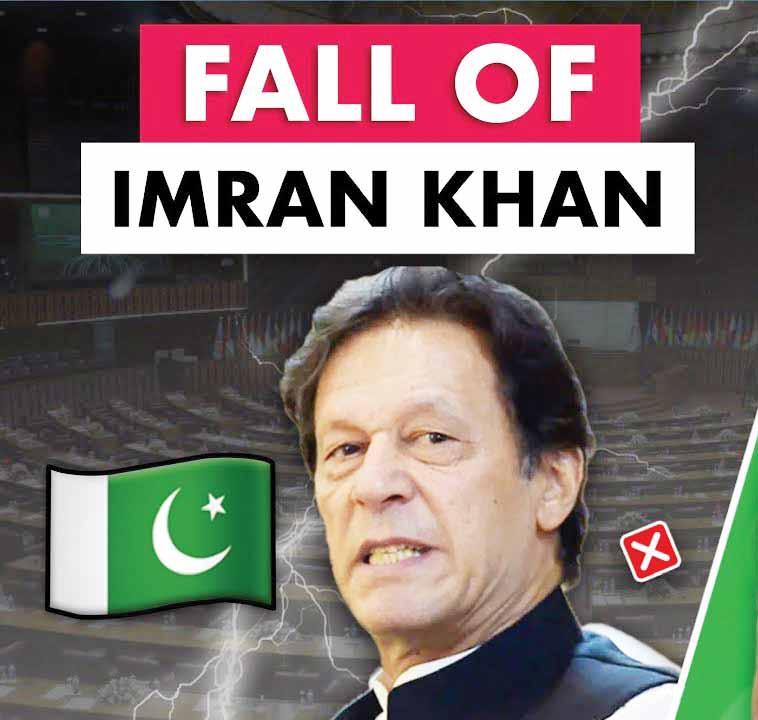
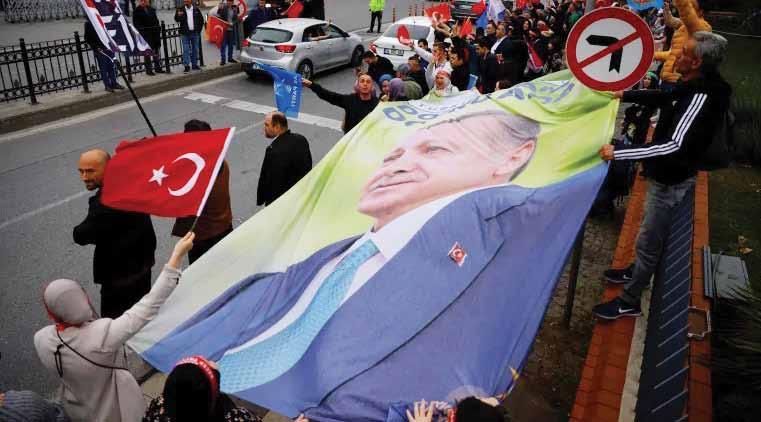
www.miraclenews.com Volume 23- Issue 598- June 2, 2023- Dhul Qadah 13 , 1444 H, $1 THE What slowdown? Economy outperforms,? Crackdown on party only adding to our vote Taliban supreme leader, Qatari PM hold talks How My Hijab Phase Changed My Life? Democracy is on the brink once again in Pak The Rights of Children Over Parents V. Authority’s decision to cancel Canada Day Fraser Health emergency room wait times. The Islamic Educ .Sch. (TIES) End of Year 07 06 16 08 03 06 04 04 14 BC, CANADA First Muslim Biweekly & Bilingual Pakistan Tehreek-e-Insaf (PTI) ? Is this the See details on Page # 6, 9, 16, 19, 20, 22, 24 See details on Page # 5 After Turkey election win, what problems does Erdogan face next ? Imran Khan’s name and picture to be banned on TV?




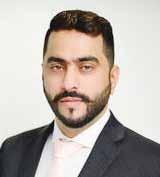
2 Dhul Qadah 13,1444 June 2, 2023
#205- 8035 120th Street, Delta, BC
By: Noor Ali
ACASE OF PRETEEN hormones
kicking in, a move to senior school, and a teacher who spoke hardly any English in a very British Missionary school in Pakistan. That was my explanation to my own disaster. From one of the smarter kids in grade six I moved into grade seven with an attitude that stunned even me. For the first time in my life I failed five classes in the first trimester, six in the next, and borderline passed in the last to move on to the next grade. For the first time in my life I thought school was unimportant, and that teachers worthy only of ridicule. All my friends were swapped for new ones, like a wardrobe change when clothes don’t fit you anymore, or they’re too old and boring, or are just not “in.” Friends I had had since early childhood were now in a different room, and it was too much effort to keep up with that friendship just at recess.
It was a first time for sneaking in Sweet Dreams novels in the book bag, and reading them at leisure. A first time for developing an inability to work without music. And then came in the parental control measures: this taste in books was unacceptable, the music listening was unacceptable, the grades were unacceptable, and very soon to my own preteen definition: ‘I was unacceptable.’
One bad year after another followed, until the last year of school. I hated the Missionary school with all that was within me. The teachers had no passion to teach, no urge to inspire, no hearts to win. The favorite students would always remain the favorite, and the “down sliders” like me would always be categorized as such. So even if there were a desire to make amends, bring the academics back, there was always this overwhelming presence of a ‘label’ on me. A down slider in the Convent could not slide
On the authority of Abu Hurayrah (may Allah be pleased with him), who said that the Messenger of Allah (saw) said: When Allah decreed the Creation He pledged Himself by writing in His book which is laid down with Him: My mercy prevails over my wrath. It was related by Muslim (also by al-Bukhari, an-Nasa’i and Ibn Majah)

how My hijab Phase Changed My Life?
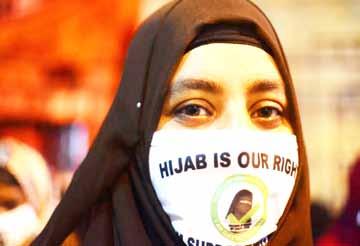
up. In the last years of school I became excessively quiet, chose to sit always at the back of the class. From somewhere— and I still don’t know how—an inspiration for the strangest of things came upon me. I decided one day that I would cover my hair. No one in my family did that, it shocked people a bit more than what I had already done.
The music went away, the posters were peeled off, and I decided on being pretty friendless, since I was again too ‘different.’ I remember my mom answering someone who asked about my hijab that it was ‘just a phase’ and that children grow out of it. Every hijab wearing girl has her own hijab story and mine had some twists too. But, by and large it wasn’t just a phase. I stuck by it, with all my eccentricities and bad grades. The last month of school, and my grades were still a mess, but my connection with Allah was not. So I prayed to Him. I said, ‘If you help me pass, I’ll be yours’. A pretty big commitment for a fifteen year old, but I had said it.
The night the results flew in from London University to Lahore, everybody was in a frenzy. I decided to sleep through the evening, woke up, and with a heart knocking, but sounding nothing, went to school to get my results. I had scored second highest in the whole school, and Sister Madeline stood there gleaming, rather stunned giving me my report card. I had no way to explain it. My mother was shocked: I had scored higher than my genius brother; my dad was muted; my friends were sure I must have developed a mad study strategy to have done this. I think this was the most surprising result in the history of the school. After this I went to the teacher who despised me most, and she said rather half heartedly, “I knew you could do it,” to which I replied, “No, you didn’t—you absolutely did not think I could.” She was silent. This miracle was from Allah. He did it, in response to a nervous fifteen year old. He made me acceptable by this grade, he made me respected, and he changed the hijab from an object of ridicule to something
Ask the Imam (Q&A) A baby boy touching a baby girl

of worship except Allaah, and that Muhammad is His slave and Messenger. We ask Allaah to exalt his mention as well as that of his family and all his companions. A baby, means a very young child who has not yet learnt to speak or talk; so if this is what you mean, there is no harm for a baby-girl to touch a baby-boy because they are not yet pubescent. The Prophet (saw) said: “The pen is lifted from threeand a child until he grows up [becomes pubescent].” Furthermore, there is no evil which results from them touching each other. Allaah Knows best. (Source: islam_web) Classified in Women and Family > Rights of Children
Source: www.islamicity.org/qa
meaningful.
I was suddenly the smart kid, and I decided to go to a co-ed High School. This was a move that required a lot of thinking. I had always been at the all-girls-convent school, and everyone else from school always went on to the ‘no-work-no-study elitist college’ and did a run of the mill Bachelors degree to get married. The private London University High School was a bit more serious. With all these reservations I went in still nervous, not fitting in but willing to try. And that’s when the second miracle happened. Mrs. Sonnu Rehman (she is what every youth needs) was the History teacher; I never took History, so never sat in one class of hers. But she touched my life in the most inspiring of ways, and pushed me into a world that was full of excitement, where there was much to be done. And best of all, much to be done by me.
She was the oldest teacher on campus, but as someone called her most accurately, ‘an inspiration for all ages.’ She could inspire people of her own age with her sheer energy; she could inspire the middle-aged ones with her effort, and she could reach all of us teenagers with her zeal for virtually anything. I had never spoken up before; partly because the Convent was claustrophobic when it came to self-expression and drab when it came to extracurricular. She kept me after school one day to try out for public speaking. I was perhaps better than average, and she sent me off for a competition out of school.
She worked tirelessly to polish my final speech, adding, editing, hearing me over and over again, as if I was the only student around. I spoke, and managed to be selected for the National Team representing my country in England. After that first time, there were many more to follow. Mrs. Rehman’s initial effort with me, her always being available to speak to, paid off tremendously. We won many laurels for the country several times over, but for me what was most important was the way she built up confidence in me.
Once initiated there is no stopping a youth who has been channelized. I knew I could act, do poetry recitals, run for student government — anything, because Mrs. Rehman would always think the same. She was the first teacher who gave me her phone number to call whenever I needed something, the first teacher who invited us over to her
place. She designed our costumes for the annual play, took us on field trips that I will never forget. I learned from her that no people can move forward if they forget their past. I never took History with her but she taught me much still. Our field trips were not to museums, but to real places, like inside the Old City with her historian friend, or to a far away rural place of the mystics where upper-middle class children would never venture to go on their own.
She was teaching us that the places we thought beyond our reach or interest, were now very much within. We were talking politics with her, digging archaeological sites, digesting Marx. In those one and half years she gave me more wholesome information than ever before, because she truly thought us capable. I remember my mom once joked with her, that she could just adopt me because I spent so much time with her, and Mrs. Rehman replied that that had already taken place. I was juggling academics with the entire extracurricular explosion in my life, and because she made me think that I could, I did.
Now years later when I read The Little Engine that Could to my children, I think about how all of us are little engines at some point or the other. Without someone to start us on chant of belief in ourselves, we all consider ourselves incapable of big endeavors. Mrs. Rehman to me was the perfect adult factor who filled my life with this chant. Sometimes I think if she had not made the effort and become an active agent in my life I would perhaps have never come out of teenage insecurities and inhibitions. The world would have remained an impenetrable reality and myself too weak, too unsure. My parents would not have pulled this miracle with me. No matter how they tried, they tried the wrong way, because they were on the other side just like all the Convent teachers were. Mrs. Rehman was on my side. She wasn’t making it happen; she was making me make it happen. She talked to me, not at me, a difference many adults fail to see. She showed me my own potential.
Now when I’m older, teaching children, I try to be like her. I try to have the same zeal for others’ lives, like she did for me. That is the only way we can salvage our youth, and inspire them to dream big.
Source: aljumuah.com
Prayer Schedule in Greater Vancouver



Dhul Qadah 13,1444 June 2, 2023 3 f AIT h
For such Prayers are enjoined on believers at stated times: Quran ,n 4:103 Source: BCMA Day Date Isl. Dt. Sunr Zawal Dhuhr Asar Maghrib Fajar Isha June 2- 16, 2023 -Zul Qaddah 13- 27, 1444H Fri Sat Sun Mon Tue Wed Thus Fri Sat Sun Mon Tue Wed Thus Fri 13 14 15 16 17 18 19 20 21 22 23 24 25 26 27
A
ll
perfect praise be to Allaah, The Lord of the Worlds. I testify that there is none worthy
Keith Gerein: Alberta’s election results are about the worst-case scenario for Edmonton
kudos are rightly given to the UCP and leader Danielle Smith for a hard fought victory on Monday night. The people have spoken, democracy wins and all that. At the same time, I have to admit those words are a bit harder to say than usual.
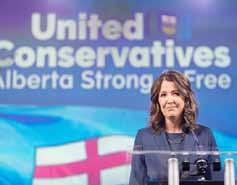
Can the UCP forge a far more respectful relationship with the two big cities that elected them in just 12 out of 46 ridings?
Convention dictates that in the wake of an election, the right thing to do is congratulate the winners, because doing so shows respect for the will of the voting public. So in that spirit,
This one stings, and I suspect at least 45 per cent of voters out there, many of them in Edmonton, would agree it doesn’t much matter that it was the closest election in Alberta history. That’s not to say the NDP deserved to win. The campaign run by Rachel Notley’s party was merely OK when it needed to be perfect. It lingered too long in negativity that started to rub voters the wrong way
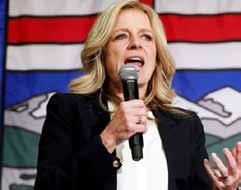
— yeah, we get it, Danielle Smith has said some kooky things — couldn’t find a coalescing, affirmative idea for Albertans to get behind, and couldn’t really alleviate fears over how the party would steward the economy. Simply defining oneself as the antithesis to Smith was never going to be enough, especially in such a tough electoral landscape. But if the NDP fell short of deserving, the UCP seemed a chasm away. You’d think it would be disqualifying for a politician to try to interfere in the prosecution of a man with highly distasteful views and charged with very serious crimes. Or for that same politician to liken
vaccinated Albertans to Nazi followers. Or any number of other disturbing things we heard from Smith and a handful of her candidates.
Source: edmontonjournal.com
Vancouver mayor ‘incredibly disappointed’ in port authority’s decision to cancel Canada Day fireworks
For years, it ended Canada Day in Vancouver with a bang.
Prior to the pandemic, tens of thousands would gather to view the dazzling fireworks display launching into the night sky from the Burrard Inlet. In 2022, the Vancouver Fraser Port Authority cancelled the fireworks, citing rising event costs.
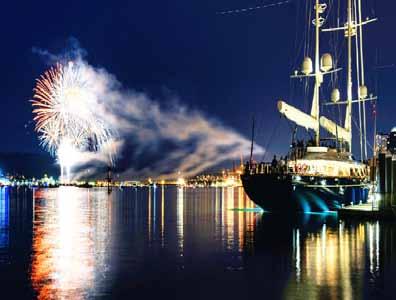
Now, the federal agency says the fireworks will not return anytime soon.“It was a big decision,” said Gillian Behnke, communications manager with the Vancouver Fraser Port Authority. ”The primary reason was rising costs.”
Behnke says the fireworks have a pricetag upwards of $200,000.
“Things like fencing, porta-potties,
everything has gone up in price and we had to make some decisions,” she said.
Vancouver mayor Ken Sim isn’t pleased with the decision.
“We’re incredibly disappointed to see them cancelled this year,” Sim told CTV News via text message.
“We will be reaching out to the port authority to discuss this further and hope to see a return of Canada Day fireworks in the coming years.”
The City of Vancouver told CTV News it is not planning a fireworks display of its own for Canada Day.
Nearby cities including Surrey, Burnaby and Abbotsford are including fireworks in their Canada Day festivities.
According to a City of Surrey representative, that city’s fireworks display costs approximately $66,000 in total. The city says its display is mostly funded through corporate sponsors. In Calgary, the city originally cancelled its annual Canada Day fireworks display this year, but heavy pushback resulted in the city reversing its decision.
For festivities in Vancouver, the daytime “Canada Together” event remains a go, with various performances and activities planned. The port authority says programming was decided on in consultation with local First Nations, and details for the event will be released next week. Source: bc.ctvnews.ca/vancouve
B.C. premier defends housing policies at town hall
Premier David Eby took part in a town hall Thursday, fielding questions about everything from crime, to disability rates and childcare. But the crowd also wanted answers on housing. At Camosun College’s Interurban campus, Eby faced an
NDP-friendly crowd who had questions about a yet-to-bedetailed program that would allow each single family home in the province to be replaced by four units.
Wei Tu who said she’d lived in Victoria and Saanich for more than 30 years thanked the premier for his work in light of the ‘hand grenades’ he was handling – housing among them.
Tu wanted details about the fourunit plan, saying it lacked some specifics. ”The lot size could be 10,000 square feet, it could be 100,000 square feet. When you say four units per lot, it doesn’t really address the issue,” Tu said to the premier. Her suggestion was that instead four units be allowed for every 10,000 square foot of space as a way of more effectively increasing supply.
Eby explained that the Housing Ministry was working with the Union of BC Municipalities to figure out how a plan to increase density can be executed.
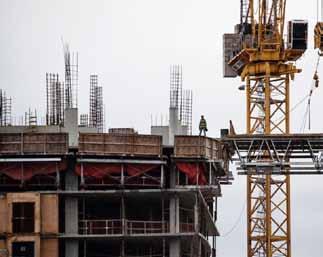
“The detailed work is happening with the cities right now, to make sure we’re addressing key ques-
tions, like infrastructure, and sewage and water that we need to deal with,” Eby replied. For some mayors the idea may be a tough sell. At a recent housing summit hosted by the UBCM there was a lot of heated debate.
Richmond Mayor Malcolm Brodie asked what would happen to services already understaffed like police, schools, and hospitals. Any big change is likely also being looked at carefully by concerned citizens like Tu.
Tsur Somerville, a professor of real estate science at the University of British Columbia, pointed out that changing people’s minds may take years. Part of the reason why, he explained, is because for many
homeowners, the bulk of their wealth is tied up in their property.
“Part of it, particularly for owners, is ‘I’ve got so much invested in this, and if this goes wrong, it’s really going to hurt me’” he said. While the speculation and foreign buyers’ taxes deal with demand -- Somerville beleives supply and speed are crucial.
“If you think affordability is the problem, the main solution is more housing – more housing, more quickly delivered,” added Somerville. And alack of supply will only become a more pressing concern, with Eby noting that more people have moved to B.C. so far in 2023 than did in all of 2022.
Source: bc.ctvnews.ca/
fraser health emergency room wait times now available online


last week, and the move comes as physicians in multiple emergency departments have started to speak out about dire conditions that are putting patients at risk.
“We apologize if you are experiencing longer than usual wait times in our emergency departments. We are experiencing higher patient volumes right now coupled with hospitalist medicine and human resources challenges,” an update on the health authority’s website says.
“We are working to support our pa-
tients moving through the emergency departments in the safest and fastest way possible to reduce emergency department congestion.” n neighbouring Vancouver Coastal Health, information about wait times has been available online for over a decade.
Fraser Health, in a statement, says it saw a seven per cent increase in emergency department visits over the last fiscal year, compared to pre-pandemic figures. More than 2,000 people attend emergency rooms in the region each day.“By providing information about
wait times and expected length of stay, we hope to improve the experience for our patients and their families by reducing uncertainty and anxiety they may feel while waiting for care,” it says, noting that wait times can fluctuate suddenly and unexpectedly.
The online information, Fraser Health says, can be used as a tool to plan for how to access care – but anyone having a medical emergency is still urged to call 911 or to go the nearest hospital immediately..Source: bc.ctvnews.ca

Dhul Qadah 13,1444 June 2, 2023 4
Information about average wait times at Fraser Health’s emergency rooms is now available online,
the health authority announced Tuesday. Hospitals in the region were added to the list of facilities
Rachel Notley gives her concession speech at the NDP campaign headquarters, in Edmonton.
BC N E w S
Game of political engineering
THEY all appeared to be reading from the same script as they renounced their affiliation with the PTI. They left in droves; many of them had occupied senior positions in the party and in government. Just a few days in detention seemed to have broken them. It produced a domino effect, with a mass exodus of the second- and third-tier leadership. Some succumbed to intense pressure from the security agencies and the threat of persecution, while others jumped ship before the vessel hit the rocks. We are witnesses to a process of the dismantling of a party by the same forces that had once propped it up. Tension had been building up for quite some time but the confrontation came to a head after the May 9 attack on the ‘citadel’ by enraged PTI supporters. The empire struck back with a ferocity not seen in recent times. The party simply buckled under. Imran Khan grossly miscalculated the cost of taking on the powerful establishment. The party may not be over yet but it will be hard for the former prime minister to regain lost political ground. The virtual dismemberment of the PTI is part of a new round of political engineering, a game that has regularly been played by the powerful and ubiquitous security establishment. But the way arguably the most powerful political force has fallen apart is intriguing. The monotonous tone of the deserters leaves nothing to the imagination. Reading from the same text, they condemn the May 9 violence and declare their allegiance to the security forces. Interestingly, their conscience woke up some days after the in-
cident. It required a few days in detention or a midnight visit by the ‘invisibles’ to revive a sense of ‘patriotism’ in them.
Earlier a victim of the establishment’s machinations, PML-N has now become an instrument of it.
After joining the ranks of flag wavers, the deserters are now looking for new avenues, abandoning thousands of young men and women who were carried away by the promise of a revolution.
Many of them are languishing in prison and face trial under anti-terrorism laws. Of course, there are still some brave hearts in the leadership who are staying firm. But the die has been cast. The job of dismantling the party has to be completed.
What we are witnessing is the replay of the old game of political engineering. While the director is the same, the actors’ roles keep changing. The protagonist of the previous act is now the new villain and the baddies are now back in the leading role.
Almost every political party at some point has gone through this phase of ignominy in this sordid power game orchestrated by the establishment. Political engineering is a means of maintaining control over power.
The country has gone through various phases of direct military rule, alternating with civilian democratic dispensations functioning under the shadow of Big Brother. The civil-military clash has often led to regime change.
The game of musical chairs has continued, preventing democratic institutions from consolidating. This is the story of 75 years of our political history.
Not surprisingly, the country’s
basic power structure has never changed. Political engineering is also a way of protecting vested interests.
The political parties, that mostly represent the ruling elite, willingly ally themselves with the establishment in order to protect their own interests. The rise of Imran Khan also owes itself to political engineering, and the confrontation with his erstwhile patrons now threatens to block his way back to power.
The hybrid rule of which the PTI was a beneficiary hugely weakened the democratic process, thus strengthening the hold of the security establishment. Khan’s victimisation of opposition leaders vitiated the political atmosphere. Even after his ouster from power, his continuing confrontational policies blocked the democratic process. His inflated ego has been the biggest obstruction in the way of any political dialogue. Instead of sitting in parliament, he set off on a collision course, seeking to bring down the PDM government through street power. What happened on May 9 is the result of his vitriolic narrative.
Ironically, in a role reversal, the PML-N which had earlier been the victim of political engineering has now become an instrument of it in the latest season of the game of thrones. There has also been talk about banning the PTI or disqualifying Imran Khan. Nothing could be more damaging for the political process.
More than any other political party, the PML-N should realise that such actions never work. A ban cannot keep a popular leader out of the political arena even if one is not allowed to partici-
pate in electoral politics. Nawaz Sharif is disqualified for life but he remains one of the most powerful leaders, virtually running the current government from self-exile in London.
Despite the large exodus of senior party members, Imran Khan’s mass popularity doesn’t seem to have diminished. He cannot be removed from the political arena. Any move to ban the party will further weaken the democratic process.
Indeed, the perpetrators of the May 9 violence must be brought to justice and Khan too should face the charges against him in court. But the May 9 incident must not be used to delay the elections. Any unconstitutional move will strengthen Bonapartism.
Amid the clampdown and exodus of senior party leaders, there is some indication of softening in Khan’s hard-line position. In a recent statement, he called for talks among all stakeholders to resolve the present political crisis. It is a sharp departure from his earlier position not to engage with the ruling coalition at all. With his party facing disintegration and the sword of disqualification hanging over his head, Khan’s options are shrinking. His political survival also depends on the continuation of the democratic process. Unfortunately, his offer for reconciliation has been rejected by the ruling coalition. It is a grave mistake to block the course of dialogue. Rejoicing in the dismantling of the PTI through political engineering will come back to haunt the ruling coalition. It is lesson of history they must remember.
Courtesy byy: Zahid Hussain Writer is an author and journalist.
People celebrate as Erdogan declares victory
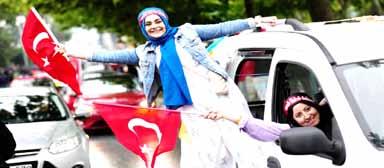
Turkey’s Erdogan declares victory after a historic run-off election poses the toughest challenge of his twodecade rule.
Turkey’s President Recep Tayyip Erdogan has declared victory in his country’s presidential election, extending his rule into a third decade.
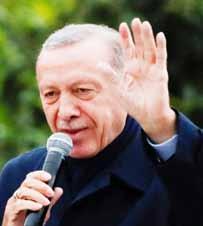
In his first comments since the polls closed on Sunday, Erdogan spoke to supporters on a campaign bus outside his home in Istanbul.
“I thank each member of our nation for entrusting me with the responsibility to govern this country once again for the upcoming five
years,” said Erdogan, the leader of the Justice and Development Party (AK Party). He ridiculed his challenger, Kemal Kilicdaroglu, for his loss, saying “bye bye bye, Kemal,” as supporters booed. “The only winner today is Turkey,” Erdogan said, after unofficial results gave him the win in the second round of voting.
News Contiue from Page 1
Istanbul, Turkey – Following his third presidential victory, Recep Tayyip Erdogan will sit down at his desk to tackle a host of immediate issues facing Turkey. Foremost in
the president’s in-tray will be the economy and how to tackle the country’s ongoing financial crises. Erdogan successfully took the focus away from a cost-of-living crisis during the election campaign – making significant hikes to pensions and salaries, providing discounts to household energy bills, all while moving the debate to issues such as security and family values.
But the Turkish economy is in bad shape, and in his victory speech on Sunday night, Erdogan highlighted inflation as the primary problem facing the country. “Resolving the problems caused by the price increases and by inflation is the most urgent topic of the coming days,” he told supporters outside the presidential palace in Ankara. “Solving them is not difficult for us. Weren’t we the ones who proved this during my time as prime minister?” Erdogan added, referring to his
Miracle Media Group Inc.©
Contact Info Mailing and Office Address 9160-136A Street Surrey BC. V3V 7Z8 Canada Ph: 604-690-0400



Fax: 604-582-7809
Founder : Nusrat Hussain
Editor in-Chief
M. Naseer Pirzada
Sub-Editors: Misbah & Sabeeh
Advertising Ph: 604-690-0400
Emails: info@telus.net miraclenews@telus.net editor@telus.net

Editorial Board : Mr.Shams Jillani, Mr Aslam Hayat, M.A.L. Naumani, Ms.Khadija Nadeem
Graphic Design: Design Teams
Copyright ® 2001 Miracle Media Group Inc. All Rights Reserved
Printed in Canada
Phone: 604-690-0400
Emails: miraclenews@telus.net miraclenewsg@gmail.com info@miraclenews.com
Website: www.miraclenews.com
Contents
I mportant note:
Letters to the editor and Articles do not reflect the opinion of the Miracle media group. We do not publish anonymous letters or the letters of the people who do not disclose their identity to ‘The Miracle.’ A writer can use a pen name or request ‘The Miracle’ to withhold his / her identity. Please include your daytime telephone number for the confirmation of your letter. We regret the inconvenience.
year
spell as premier before he be- came president in 2014.
Inflation peaked at 85 percent late last year, dropping to 44 percent last month, although independent economists dispute the official figures and say it is at 105 percent. The lira hit a record low on Monday morning of 20.06 to the United States dollar, having lost almost 80 percent of its value over the last five years... Source:aljazeera.com
Note: The Miracle requests to all readers to respect any published Islamic material including Allah’s name and Prophet Muhammad (SAW) and quranic verses. Please recycle those pages and avoid throw them in the garbage.
Dhul Qadah 13,1444 June 2, 2023 5
MIR A LE THE THE MIR A LE Faith Locals Ediorial/Opinion Pak/Can. News Int.News /M.East Politics Health Women Youth Sports Pakistan/ Urdu 3 4,14 5 6 8 4,610 109,16 17-24
Miracle Media is Member of : National Ethnic Press and Media Council of Canada
o PINI o N
what slowdown? Economy outperforms, raising odds of a rate hike
OTTAWA - The Canadian economy grew faster than expected in the first three months of the year and likely expanded again in April, fuelling speculation that the Bank of Canada will raise interest rates again. Statistics Canada reported Wednesday real gross domestic product grew at an annualized rate of 3.1 per cent in the first quarter of 2023. That growth beat out the federal agency’s own forecast of 2.5 per cent for the quarter. A preliminary estimate suggests the economy expanded by 0.2 per cent in April after remaining flat in March.
The Canadian economy has managed to continue outperforming expectations, despite the Bank of Canada hoping high interest rates would cause a more profound pullback by consumers and businesses.
“It is a little surprising the resilience, I would say, of the Canadian consumer ... just given the amount of interest rate hikes that had been put in place over the course of the previous year,” said Dawn Desjar-

dins, chief economist at Deloitte. The Bank of Canada’s key interest rate sits at 4.5 per cent -- the highest it’s been since 2007. The ongoing resilience in the economy is raising the odds of another rate hike, economists say, as the Bank of Canada heads toward its upcoming interest rate decision next week.
“The run of sturdy data undoubtedly raises the odds that the Bank of Canada needs to go back to the well of rate hikes, and even puts some chance on a move as early as next week’s policy decision,” BMO chief economist Douglas Porter said in a client note.
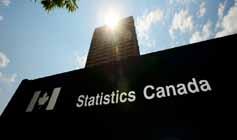
Source: ctvnews.ca
Imran Khan’s name and picture to be banned on TV? Babar Awan expresses concern
Pakistan Tehreek-e-Insaf (PTI) leader
Babar Awan has expressed concern over a possible ban on airing pictures and names of Party chairman Imran Khan.
“Due to fear of Imran Khan, there is news of banning his name and picture on TV channels,” Babar tweeted on Wednesday. He further said that the government should file a review appeal against the results of the 1992 World Cup. “if Shehbaz and Maryam will not mention Imran in their speeches what else will they talk about?” his tweet added. Pakistan Electronic Media Regulatory Authority (PEMRA) PEMRA has urged TV channels to boycott people “damaging peace” and not to promote people “inciting hatred” in relevance to the incidents of May 9 when PTI supporters clashed with law enforcement agencies. However, the media regulatory authority did not specifically mention Imran Khan’s name. t
is being assumed by commentators that the notification was referring to the PTI chairman.
“As per Article 19 of The Constitution of The Islamic Republic of Pakistan, Every citizen shall have the right to freedom of speech and expression, and there shall be freedom of the press, subject to any reasonable restrictions imposed by law in the interest of the glory of Islam or the integrity, security or defence of Pakistan or any part thereof friendly relations with foreign States, public order, decency or morality, or in relation to contempt of court, [commission of] or incitement to an offence,” the notification issued by PEMRA read.
“It is crucial to strike a balance between protecting freedom of speech and maintaining public order,” the notification added.
Source:thecurrent.pk/imran-
Crackdown on party only adding to our vote bank, says Imran
told CTV News on Wednesday.
“We’re expecting cooler temperatures and higher humidity today, so we’ll try to take advantage of those conditions.”
Approximately 60 firefighters, four helicopters and several water tender trucks are battling the blaze, which measured approximately 160 hectares Wednesday.
The Newcastle Creek fire was first reported to officials around 1:30 p.m. Monday when it covered an area of 15 hectares. High winds fueled a sixfold increase in size with the blaze reaching 90 hectares by nightfall.
The northern Vancouver Island village of Sayward remains on edge Wednesday as a wildfire continues to burn out of control just five kilometres west of the community.
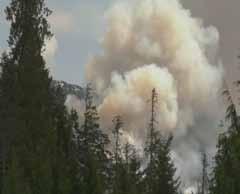
The B.C. Wildfire Service says it is still not recommending evacuation orders for the village of approximately 300 people as the Newcastle Creek fire burns for a third day.
“The fire is continuing to burn in a direction that is parallel to the community,” Nick Donnelly, a fire information officer with the B.C. Wildfire Service’s Coastal Fire Centre,
Sayward Mayor Mark Baker says village officials have “a strong plan in place” in the event that an evacuation is necessary but said current fire activity is proving “favourable” to the community. “As we know, fire can change direction at any time, but right now we’re very fortunate that no buildings have been in jeopardy,” Baker told Victoria radio station CFAX 1070 on Wednesday. Source: vancouverisland.ctvnews.ca
LAHORE: Former prime minister Imran Khan on Wednesday said the crackdown initiated against the PTI in light of the May
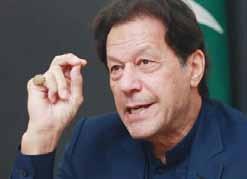
9 demonstrations has the opposite of the desired effect, as all it was “doing is adding to sympathy for [the] PTI and increasing its vote bank”. In a series of tweets, the PTI chairman lashed out at the government for forcing the party members to quit the PTI and shared ‘self-explanatory’ videos of a former lawmaker as evidence for these ‘forced divorces’. In a couple of videos of former PTI MPA Saleem Sarwar Jorra, the party leader could be seen complaining that the law enforcement agencies were not allowing him to seek treatment at a hospital..
Source: dawnnews.com
Somalia’s dodgy defense minister is seeking military support from the UK

foreign interference, published a report last Tuesday that probed the extent of foreign interference by China in Canada’s last two federal elections. Last week, Johnston controversially recommended the government not move forward with a public inquiry, citing the sensitive nature of the intelligence an inquiry would have to examine.
Somalia’s Minister of Defence, Abdulkadir Mohamed Nur, today held a special meeting with the new British Ambassador to Somalia, Mr. Michael Nithavrianakis.The Minister and the Ambassador exchanged issues on defense and security cooperation between Somalia and the United Kingdom. The Minister of Defense of Somalia also warmly welcomed Ambassador Michael who was recently appointed as the head of the UK Embassy in Mogadishu, according to sources Somali officials told Somali Times Minister of Defence, Abdulkadir Mohamed Nur is a former member of Al-Shabab terrorist groups based in Somalia. The British government is one of the governments that support the recovery of Somalia’s government. One of the aspects that
the UK supports in Somalia is the construction of the national army, and the UK has one of the training bases for the Somali army in the city of Baidoa in the Bay region.
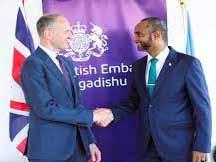
Source: somalitimes.co.uk
Former Conservative Leader Erin O’Toole says China worked to undermine his influence as MP, leader. NDP Leader Jagmeet Singh is dismissing calls to end his party’s deal with the Liberals, saying confidence must be restored in the electoral process before he makes any decisions that could send Canadians to the polls. “I would question the approach of creating the conditions for an election, or triggering an election, as not serious about protecting our democracy,” Singh said Tuesday. “If we want to protect our democracy, I would think the approach should be, let’s put in place new measures … I would like to see a series of steps being taken and that to me would show some real seriousness about protecting our electoral system.” Former governor general David Johnston, now special rapporteur on
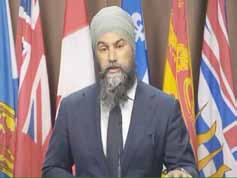
Both Singh and Conservative Leader Pierre Poilievre disagreed with that decision and continued to demand that Prime Minister Justin Trudeau call a public inquiry.
Poilievre and Bloc Québécois Leader YvesFrancois Blanchet have both said Trudeau and Johnston are self-declared friends and their longstanding ties are too close to allow Johnston to judge the prime minister’s response to foreign interference. Singh said Tuesday that while he has no criticism of Johnston’s integrity or relationship with the prime minister, the appearance of a conflict of interest explains why his report failed to settle concerns about outside interference. The NDP introduced a non-binding motion in the House calling on Johnston to step down and for a public inquiry to be struck, presided over by someone “with unanimous support from all recognized parties in the House.”... Source:ctvnews.ca
Seventeen people – most of whom are young students – were hospitalized after a falling from a height during a field trip at Winnipeg’s Fort Gibraltar. However, many of the children are now being discharged and sent home, according to an update from the hospital. Jay Shaw, assistant chief with the Winnipeg Fire
Paramedic Service, said they received a 911 call shortly before 10 a.m. on Wednesday. He said a group of students were on a school field trip when they fell from a structure about four to six metres high while inside the Fort Gibraltar complex - a reconstructed fort used during the Fur Trade. Craig Sai was one of the students on the platform when it collapsed. “When we were walking across (it), I stepped my foot on it and then the bridge – I heard a cracking noise and then I was on the ground,” Sai told CTV News outside the Children’s Hospital Wednesday afternoon. “It was very scary. One moment I was on the bridge, the second moment I was falling through the air onto the ground.”
Chantelle Craig, a woman who lives in the area, said she was in her backyard Wednesday morning when she heard a siren... Source:ctvnews.ca
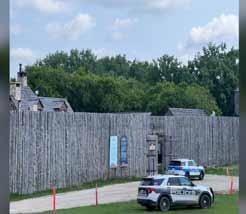
Dhul Qadah 13,1444 June 2, 2023 6 NAT&INT.NE w S
Wildfire near Sayward, B.C., continues to burn out of control with 60 firefighters, 4 helicopters on scene
Singh says he won’t force an election until confidence in the electoral system is restored
‘I heard a cracking noise’: 16 children, 1 adult injured in platform collapse at winnipeg’s fort Gibraltar
what Is The Illuminati ?
By Jamie
The original Illuminati were established in Bavaria in the 18th century. It was a small and secretive group that opposed the Church’s influence over science and politics, and they set about trying to limit the influence of the church. The group was eventually stamped out by Bavarian authorities, but many people believe the group still exists today.
Today’s Illuminati is allegedly far larger and far more powerful than when they began. Conspiracy theories claim that their membership consists of the world’s elite and that they use their power to influence global politics to their liking. Here’s a look at some of the supposed facts associated with the group and some of the individuals that are allegedly linked.
are supposedly an indicator of the Illuminati’s extended influence in all matters affecting global affairs. One such symbol is the eye of providence, which is found on US dollar bills and represents the eye of god looking over all of humanity. Conspiracy theorists, however, believe that it is symbolic of the Illuminati constantly watching over the rest of humanity. Many businesses and other organizations are accused of being associated with the Illuminati because their logos allegedly contain Illuminati symbols.
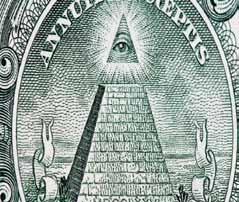
point, the family was the wealthiest on the planet. Originally from Frankfurt, the family eventually became established in London, where they are still found today, although the family is also located elsewhere. The Rothschild family’s vast wealth also gave them great power, and the family has long been the subject of conspiracy theories. The Rothschilds are a Jewish family and maintain close links with various Jewish organizations, and this only adds fuel to the fire for many conspiracy theorists.
7. John F. Kennedy
in Vietnam, a war that was supposedly very profitable for the Illuminati. Another theory suggests that the Illuminati were not happy with JFK’s efforts at limiting the power of the Federal Reserve, over which the Illuminati held a lot of influence.
8. Henry Kissinger

Henry Kissinger is a former United States National Security Advisor and Secretary of State. He was a Jewish refugee, with his family escaping from Nazi Germany in 1938. Kissinger had quite a controversial time in politics and is considered by some to be a war criminal.
Kissinger had close business ties with the Rockefeller family and, for some, this implicates him with the Illuminati. Some claim that Kissinger helped to cover up the Illuminati’s alleged participation in the terrorist attacks of 9/11, while he was also thought by some to be the antichrist himself. That he is Jewish only made the conspiracy theories more convincing for some.
The New World Order is a supposed occurrence that will see a significant change in the way the world’s hierarchy is restructured. The general idea is that the entire planet will come under the rule of a single totalitarian government mostly consisting of today’s ruling elite from around the world, including the Illuminati. The New World Order is often envisaged to be a post-apocalyptic type scenario when the masses are under the complete control of oppressive ruling factions. Some New World Order theories also have roots in religious belief systems, such as the rapture which will allegedly see good Christians taken to heaven, leaving everybody else behind to fend for themselves against evil forces.

According to some, Britain’s current ruling monarch, Queen Elizabeth II, is a high-ranking member of the Illuminati. While it is true that she and her family hold considerable wealth and influence globally, the conspiracy theories often involve claims that are quite outlandish.
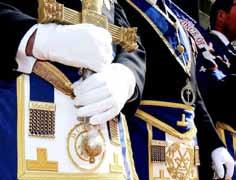
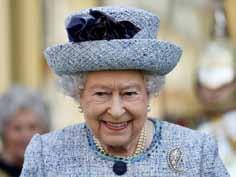
According to some, Queen Elizabeth II is in charge of a cloning facility that she uses to replicate celebrities that will do her bidding. In addition, some people even believe that she is a shape-shifting reptilian from another world. No solid evidence has been presented that comes close to confirming these claims, but that doesn’t stop conspiracy theorists from spreading their beliefs.
On November 22, 1963, the United States’ President, John F. Kennedy, was assassinated. He was allegedly shot in the head from a distance by Lee Harvey Oswald, although Oswald denied the charges. Just two days after being charged, Oswald himself was assassinated. It is not thought that JFK was a member of the Illuminati, but it is thought that the Illuminati were behind his assassination. One reason behind the theory is that JFK wanted to put an end to the war
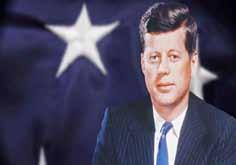
9. Beyonce Beyonce is one of the most successful performing artists in the world today.
10. Prince
The singer Prince, full name Prince Rogers Nelson, was one of the most successful performers of his era.
Source: 10faq.com/answers/
Degrees of Intent Between Murder Charges
read all the comparisons between murder types individually, you will easily understand them. Let’s start with first degree vs second degree murder.
Difference Between 1st and 2nd Degree Murders
The difference between first and seconddegree murders is subtly distinguishable. You will have to observe and notice the slight differences in the cases to understand.
Freemasons do exist, with masonry organizations found around the world. Freemasonry’s origins are thought to trace back to stonemason fraternities, which were organizations that regulated the qualifications and roles of people in the once powerful masonry trade. These fraternities evolved into exclusive social clubs for high-ranking men in various fields from politics to business.
It is true that in the past, and perhaps still today to an extent, members of freemasonry lodges would benefit from favors granted by other freemasons. Because the organizations were so exclusive and largely had wealthy, powerful members, it meant collectively that they would have significant influence over ordinary people. Many people today are convinced that freemasonry is closely linked with the Illuminati.
3.
According to many Illuminati conspiracy theorists, the presence of the organization can be identified by symbols that are allegedly strategically left behind. Such symbols

The Rockefeller family are an American family that hold vast wealth thanks to their business dealings. It is true that the family’s vast wealth gave them considerable influence over the United States’ political landscape, making them a part of the nation’s oligarchy.
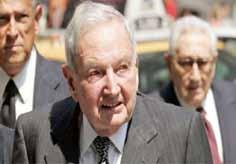
The Rockefellers considerable wealth and power make them ideal targets for Illuminati conspiracy theorists. David Rockefeller in particular was targeted, partly because he had extensive political connections in the United States and overseas. David Rockefeller died in 2017 and while the family still holds considerable wealth, the family are no longer as influential as they used to be, at least not visibly anyway.
Jacob Rothschild is a prominent member of the Rothschild family that first started in the banking business in the 1760s. Since then, the family business developed and, at one
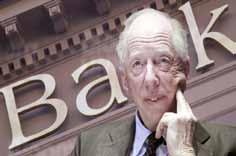
Differences between first, second and third degree murders will enlighten your knowledge and help you find the right steps to face any lawsuit related to it. We are going to explain the difference between 1st 2nd 3rd degree murders and manslaughter for you. Without spending time here, let’s start our discussion. One of the heinous actions someone can commit is to take another person’s life. This is a belief that is acknowledged by the law and outside of the law too. However, it is essential to remember not all murder is committed with malicious intent or with intent at all. Thus, it is vital to understand and educate ourselves regarding different types of murder.
Difference Between 1st 2nd 3rd Degree Murders and Manslaughter
As we’ve said in the introduction, we will discuss every kind o-f murder case recognized in Canada. It is difficult for people to understand all those murder differences at once. So, we have broken them down part by part. Additionally, you should read individual definitions of murders carefully. However, in the end, you will see the ultimate comparison between degrees of murders. So, you can see them at once. And as you will
Murder Punishment
You can read about the 1st-degree, 2nd-degree & 3rd-degree murder sentences. The defendant must abide by if charged with any of the murders in the list below.
First-degree Murder
If a defendant is charged with first-degree murder, then they will get an automatic life imprisonment sentence.


They will not get parole for 25 years.
Second-degree Murder
If a defendant is charged with second-degree murder, they will get ten years in prison with no parole.
Depending on the severity of the case and the situation around it, the defendant might also be sentenced to life imprisonment with no parole for 25 years.
Third-degree Murder or Manslaughter
There is no minimum sentence; in this case, however, there is a fine that the defendant must pay depending upon the severity of the situation.
But if a firearm is involved, the defendant will be sentenced to a minimum of four years in prison. Source: criminallawyerregina.ca
7 Dhul Qadah 13,1444 June 2, 2023 D o Y o U KN ow ?
1. The New World Order
2. The Freemasons
Symbolism
4. Queen Elizabeth II
5. The Rockefeller
6. Jacob Rothschild
US denounces China’s ‘aggressive maneuver’ over South China Sea

The US has accused a Chinese military jet of flying too close to its aircraft, causing dangerous turbulence. The United States has accused a


Chinese fighter jet of performing an “unnecessarily aggressive maneuver” against one of its aircraft during a flight over the South China Sea, a disputed region of significant strategic importance. In a written statement on Tuesday, the US Indo-Pacific Command — the armed forces branch overseeing the region — said its aircraft was conducting “safe and routine operations” in “international airspace” when it was intercepted by the Chinese J-16 jet. Its pilot “flew directly in front of the nose of the RC-135, forcing the US aircraft to fly through its wake turbulence”, according to the press release.“We expect all countries in the Indo-Pacific region to use international airspace safely and in accordance with international law,” the statement added Source: aljazeera.com
At least 40 killed in clashes with troops in India’s Manipur
New Delhi has deployed security forces to Manipur to try and put down ethnic unrest that began earlier this month. Dozens of rebel fighters have been killed in clashes with security forces in India’s remote northeastern state of Manipur. The state has been on edge since the explosion of inter-ethnic violence on May 3 between tribal groups and the ethnic majority Meitei people over plans to extend economic quotas to the Meitei.Dozens were killed in the unrest and thousands were displaced. On Sunday, Chief Minister N Biren Singh told reporters at least 40 fighters had been killed in a crackdown by security forces. Two police had also been killed in the past two days of unrest, he added. “The terrorists have been using M-16 and AK-47 assault rifles
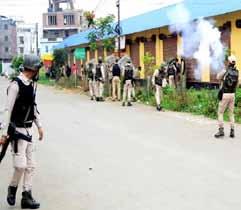
and sniper guns against civilians. They came to many villages to burn down homes,” local media quoted Singh as saying.Source: aljazeera.com
Ukraine takes plea for more weapons directly to Canada’s defence sector
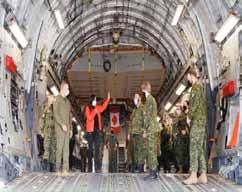
Countless lives can be saved by putting national interests aside and spearheading a fossil fuel phase-out at this year’s COP. There is a big difference between national leaders and global leaders. The former push national interests on the global stage, often using the rhetoric of global solutions. The latter carry a vision that extends beyond personal
of CoP28
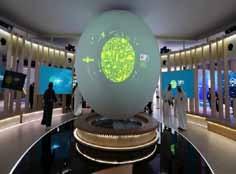
interests, election cycles or profit margins to do the best for humanity.
The position of president of the Conference of the Parties (COP), the United Nations’ annual climate summit, requires a global leader. This year’s conference will be held in the United Arab Emirates under the presidency of Sultan Al Jaber, CEO of the Abu Dhabi National Oil Company. It is hard not to be deeply sceptical of the idea that the head of an oil company will be able to drive the 28th summit of COP towards an outcome which gives the world hope about its future in the shadow of a devastating climate crisis. That is because fossil fuels account for 75 percent of global greenhouse gas emissions, and in order to have some hope, we must end the use of oil, gas and coal in a rapid and just manner... Source:aljazeera.com
Taliban supreme leader, Qatari PM hold talks in Afghanistan
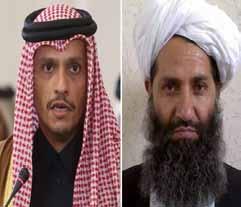
Ukraine is doing the work ‘NATO was created for,’ Oleksiy Reznikov tells defence contractors Ukraine’s defence minister bypassed the Canadian government Wednesday and took his country’s plea for more sophisticated weapons directly to Canada’s defence manufacturers. Through a video statement, Oleksiy Reznikov told the audience assembled
for Canada’s largest defence exposition that his country has urgent military equipment needs that must be filled. “Hence, we count on Canada’s long-term support in this area,” Reznikov told the Canadian Association of Defence and Security’s (CADSI) annual trade show (CANSEC). “Ukraine has given a list of their Canadian products and technologies it needs to the Canadian government.” Ukraine, he said, wants to work in partnership with Canada and its defence contractors to make sure the hardware is “available to us when we need [it] and in the quantities we require.” His appeal comes as the federal government struggles to get badly needed equipment to the Canadian Army in Europe and faces complaints from soldiers about the age and quality of their weapons and protective equipment. Source: cbc.ca/news
fiji: Dr fong on $30m Keyasi hospital | we had to follow policy
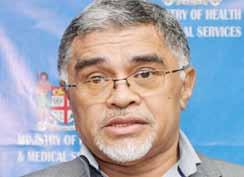
Mr Ditoka questioned the necessity of investing heavily into constructing the hospital, he said research should had been done and a better strategy would have been upgrading the Sigatoka Hospital and providing improved ambulances services, given only two or three patients had been admitted in the Keyasi Hospital in the past few months.
Dr Fong, who was the Health Ministry PS under the FijiFirst government said the construction of the $30 million hospital “has been a source of discussion within our corridors”.However, he said civil servants “work with whatever policy the government of the day rolls out”. “Those were decisions that were made under a different policy arrangement and many of us do feel some sympathy for what the minister has said, it has been discussed within our corridors,” Dr Fong said. Source: fijitimes.com
The May 12 talks included a meeting between Taliban’s Haibatullah Akhunzada and Qatar’s Mohammed bin Abdulrahman Al Thani. The Qatari prime minister held talks with the Taliban earlier this month, signalling a new effort by the Taliban to end its international isolation since they took over Afghanistan nearly two years ago. The talks took place on May 12 in the southern city of Kandahar, which included a meeting between the Taliban’s supreme leader, Haibatullah Akhunzada, and Qatari PM Mohammed bin Abdulrahman Al Thani. However, no details or official readout from the meeting have been released. According to state outlet Qatar News Agency, Al Thani’s visit came in the context of the country’s “political role in communicating with various parties in addition to facilitating the relations between the caretaker government and the international community and seeking to achieve security and prosperity for the Afghan people”.
According to Reuters news agency, a diplomatic source said United States President Joe Biden was also briefed on the talks between the two countries. “He had a brief meeting with Haibatullah [Akhunzada]. This is very important because this was the only time that an international leader has met Haibatullah,” Al Jazeera’s Osama Bin Javaid said... Source: aljazeera.com
fighting in Sudan: A timeline of key events
Six weeks after fighting erupted between Sudan’s army and the RSF, multiple ceasefire deals have faltered and hundreds have been killed. Efforts to end Sudan’s war, in its seventh week, suffered a major setback when the Sudanese army suspended talks with its rival paramilitary Rapid Support Forces (RSF). Negotiations began in the Saudi Arabian port city of Jeddah in early May with the objective of protecting civilians and implementing ceasefire deals that have repeatedly been violated. Fighting continues in Sudan a day after ceasefire extended More than 1,800 people have been killed since the battles began in mid-April, according to the Armed Conflict Location and Event Data Project, and more than 1.6 million people have been displaced
within the country or across its borders, the UN has said, with many fleeing to Egypt, Chad and South Sudan.
Source: aljazeera.com
Bangladesh: Are tax policies addressing inequality?
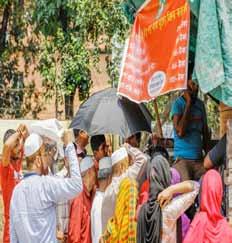
equality through the redistribution of income. For all latest news, follow The Daily Star’s Google News channel. But in Bangladesh, tax policies are not able to address the issue of inequality as 67 per cent of the revenues are collected through indirect taxes which fall on rich and poor equally irrespective of their income. Besides, exemptions, tax evasion as well as various loopholes in the income tax system reduce the efficacy of the direct tax, according to five economists. Direct tax is generally progressive in principle as the tax is collected on income. On the other hand, indirect taxes such as value-added tax or supplementary duties tend to be regressive.
Bangladesh’s economy has been growing at an average 6 per cent annually for the last two decades. Yet the country has witnessed a spike in income and consumption inequality. Usually, fiscal policies, particularly those related to tax, are tools that are used to reduce in-
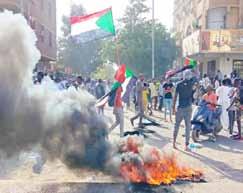
“Our statutory personal income tax system is more progressive than the system on the ground,” said Zahid Hussain, a former lead economist at the World Bank Bangladesh.
Source: thedailystar.net
Dhul Qadah 13,1444 June 2, 2023 8 I NT & M.EAST
what we need now from the leadership
Many of those working in the Health Ministry sympathise with comments made by Rural and Maritime Development Minister Sakiasi Ditoka regarding Navosa Sub-divisional Hospital in Keyasi. Health Ministry permanent secretary Dr James Fong said this in response to queries from this newspaper in relation to Mr Ditoka’s comments about the hospital.
By: MadihaAfzal
Pakistan’s ongoing political crisis has reached a crescendo this month with former Prime Minister Imran Khan’s arrest and its fallout. The contours of the conflict are clear: it is Khan versus Pakistan’s military establishment. And the gloves are off.
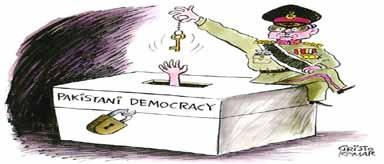
Khan was arrested on May 9 from the premises of the Islamabad High Court, whisked away by dozens of paramilitary troops in riot gear, ostensibly for a corruption case. But the manner and timing of his arrest — coming just after he had doubled down on his allegations that a senior intelligence official was responsible for an assassination attempt against him last November — indicated that the arrest was more about the confrontation between Khan and Pakistan’s military which began last spring with his ouster in a vote of no-confidence. The arrest set off protests on the same day across Pakistan, some of which turned violent and involved vandalism against military installations. In unprecedented scenes, protesters attacked the gate of the army headquarters in Rawalpindi, the corps commander’s house in Lahore, and other buildings, including the Radio Pakistan offices in Peshawar. At least eight people died in clashes with the police. The country’s telecommunications authority shut off access to mobile internet services and social media for several days. In response to the protests, police have arrested thousands of Khan’s party workers, reportedly harassing their families in the process; many of them are yet to be produced in court. They also arrested senior leaders of Khan’s party, the Pakistan Tehreek-e-Insaf (PTI), and key members of his former cabinet: his former foreign minister, finance minister, human rights minister, and information minister.
On May 11, Pakistan’s Supreme Court deemed Khan’s arrest from the premises of a court unlawful, and the Islamabad High Court granted him bail the following day. As he was released, he pointed a finger at one man: Pakistan’s army chief, General Asim Munir.
A FIGHT TO THE FINISH
Khan’s confrontation with the military has now devolved into an existential, zero-sum fight between the country’s most popular politician and its most powerful institution. Khan, once the military’s favored politician, has since last year stoked popular resentment against the institution, which he blames for his ouster. The attacks on military buildings after Khan’s arrest damaged the institution’s veneer of invincibility. The military — long Pakistan’s sacred cow, its one institution deemed untouchable — has not taken kindly to Khan’s dissent.
It has responded forcefully to the protests on May 9 — which it has called a “black day” — saying that violent protesters will be tried in military courts. Trying civilians in army courts would violate Pakistan’s obligations under international human rights law. But Pakistan’s National Security Council backed the military’s decision and its civilian government has lined up behind it, dealing a blow to the constitution and rule of law in the country. This week, an anti-terrorism court in Lahore allowed the handing over of 16 civilians to the military for trials.
In some ways, Khan’s popular support had acted as a buffer over the last year against the military’s assertiveness. But after the protests on May 9, the military establishment has reverted to its usual playbook for political leaders and parties that fall out of line in Pakistan. In this, it is using the pliant coalition government as its part-
Having come to power through a military coup himself in 1989, al-Bashir needed to keep his own army in check without rendering it too weak to maintain his hold on power.
ner, as it has in the past with the government of the day. For its part, the government, in its eagerness to comply with the establishment, has been all too willing to forget the lessons of the past, when it itself had been at the receiving end of the establishment’s ire.
Senior leaders of the PTI, part of Khan’s inner circle, have been rearrested repeatedly even after being granted bail over the last two weeks. This week, they buckled under mounting pressure and have been leaving the party, one after the other. Shireen Mazari, the former human rights minister, who had been arrested five times over two weeks, was the first in the top ranks to quit this week. Fawad Chaudhry, the former information minister, followed suit. Party stalwart and close Khan aide Asad Umar announced that he was stepping down from his leadership positions within the party immediately following his release from jail. Among the PTI’s senior-most leaders, only former Foreign Minister Shah Mehmood Qureshi, still incarcerated, remains with the party. Other prominent party members have also resigned. The government says it is considering a ban on the PTI. Pressuring politicians to quit or switch parties has long been part of the Pakistani establishment’s playbook, which allows it to maintain an iron grip on politics. Khan had been the beneficiary of such maneuvering prior to the 2018 election. But the ferocity of the pressure and the speed of the defections this time around have taken even seasoned observers of Pakistan’s politics and its civil-military machinations by surprise. Meanwhile, the coalition government has taken on a separate confrontation with the chief justice of Pakistan’s Supreme Court, alleging that Pakistan’s judiciary is biased in favor of Khan. Parts of the ju-
power with civilians representing the protest movement during a transitional period before elections.

diciary are now pitted against one other.
At the same time, the economy is in dire straits. The country has been perilously close to default for months, and inflation reached a record 36.4% last month. The last tranche of an International Monetary Fund bailout program, set to expire in June, has been on hold for months as the fund waits for Pakistan to secure loans from the Gulf and China. The failure of the coalition government led by Prime Minister Shehbaz Sharif to deal with the economic crisis has left it deeply unpopular. No institution in the country seems capable — or willing — to take it out of its current mess.
WHAT’S AT STAKE?
General elections are due in Pakistan by October. It is far from clear whether they will happen on time or whether they will be free and fair. It is apparent that the state wants Khan sidelined before then. After his ouster last year, Khan had rallied massive amounts of popular support — and demonstrated it in lively rallies around the country and in by-elections held in July and in October. His party, which had been in power in Punjab, Pakistan’s largest province, and in Khyber Pakhtunkhwa, dissolved those two provincial assemblies this January in a bid to force early elections. But that gamble backfired: the state has refused to hold those provincial elections within 90 days as constitutionally mandated and has defied a Supreme Court order saying the Punjab elections needed to be held by May 14.
violence in the Sudanese region of Darfur had disrupted supply chains for the SAF’s weapons.
For a while, it seemed that in the usual conflict between the establishment and an ousted political leader, this time could be different. Khan had momentum because of his rallies, the unique demographics of his popular support (urban, young, middle class), his party’s savvy use of social media, and the extent to which he took the military head-on. But given the frontal assault on Khan and the PTI at this point, all of that may not be enough to substantially change outcomes for him. If history is any guide, it’s not looking good for Khan, his party, or Pakistan’s democracy. Quashing the PTI will leave behind a genuine and frustrated support base for Khan — one completely disillusioned with Pakistan’s establishment parties — that has no one to support.
WHAT THE UNITED STATES CAN DO?
The Biden administration, which has limited its engagement with Pakistan over the last two years, should stand in favor of democracy in Pakistan, the rule of law, and the supremacy of its constitution, all of which are currently under threat — and not with the United States’ usual and favored partner in Pakistan, its military. This means the administration should explicitly speak up against violations of the rule of law and the country’s constitution — especially against the idea that civilians may be tried in military courts in the country — and in support of free, fair, and ontime elections in Pakistan this year. This is the only way forward for the country. Source: brookings.edu/
RSF leader Mohamed Hamdan ‘Hemedti’ Dagalo, left, and army chief Abdel Fattah al-Burhan, right
How do the rival Sudanese army and the paramilitary RSF stack up against each other, and what might happen next?
By Hager Ali
The crisis in Sudan is in its fifth week with no end in sight.
Neither the Sudanese Armed Forces (SAF) nor the paramilitary Rapid Support Forces (RSF) have been able to gain decisive victories in the capital, Khartoum.
But their inability to overpower each other is not totally surprising. Instead, it is largely a byproduct of longtime President Omar al-Bashir’s strategy of rule in a country that has witnessed 16 failed and successful coup attempts since its independence.
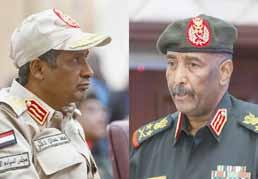
A sizable paramilitary is seen as reducing the risk of military coups because it shifts executive power away from a regular military to add a layer of protection against foreseeable mutinies. For one state to have two sizable, quasi-independent armed forces is extremely risky and only works if these armed forces fulfil different functions to counterbalance each other. With the constitutional task of upholding domestic order and contributing to the country’s development, the SAF is the coercive backbone of Sudan’s political system. Under al-Bashir, military spending accounted for up to 29 percent of Sudanese government expenditures. Al-Bashir ruled Sudan for 30 years until the military removed him in April 2019 on the back of monthslong popular protests. After months of wrangling, the new ruling generals agreed in August 2019 to share
But in October 2021, Sudan’s fragile democratisation process came to an abrupt end when the leader of the army, Abdel Fattah al-Burhan, and the RSF commander, Mohamed Hamdan “Hemedti” Dagalo, seized total power in a coup. Cracks, however, soon emerged as the pro-democracy protests continued and the thorny issue of the RSF’s integration into the regular army remained unsolved. Cameron Hudson, an analyst at the Center for Strategic and International Studies, said that in terms of their equipment and training, “[the] SAF are a conventional African army in the sense that their order of battle is in the domain of heavy weaponry and armour. They have tanks, armoured personnel carriers, and they have an air force which gives them air superiority.” According to the SIPRI Arms Transfers Database, in the last decade, Belarus, China, Russia, and Ukraine were the SAF’s most important suppliers of aircraft, missiles and armoured vehicles.

A United Nations arms embargo imposed in 2004 in response to
“They struggled to keep their equipment operating because they could not get spare parts. Sudan is also a punishing environment for sophisticated weaponry because of the sand and heat. Equipment and maintenance were a challenge [for the SAF]”, Hudson said.
The RSF, on the other hand, is a non-conscripted force that was formally set up as an extension and counterweight to the SAF a decade ago, evolving from the so-called Janjaweed militias under the auspices of al-Bashir to combat secessionism in Darfur.In 2015, the RSF was officially incorporated into the state’s coercive apparatus under the command of Hemedti, subjugated only under al-Bashir and his National Intelligence and Security Service. Like the Janjaweed, members of the RSF were recruited by Hemedti from Arab tribes in Darfur. This makes the RSF culturally, ethnically and religiously more cohesive than the conscripted corps of the SAF. The RSF also has its own revenue streams; private companies owned by Hemedti and members
of his family, including holdings in gold mining, livestock and infrastructure. Hundreds reportedly killed in violence in Sudan’s West Darfur In contrast to the SAF, the Janjaweed’s chief purpose was targeted armed campaigns against non-Arabs in remote areas. The RSF retained the Janjaweed’s tactical setup as a mobile guerrilla and counterinsurgency force. Domestically, it has previously fought in Kordofan, the Blue Nile State and Khartoum in 2019; outside Sudan, RSF members have fought against the Houthi rebels in Yemen. In terms of weapons, the RSF uses some government-supplied arms, though it is also known to confiscate weaponry and vehicles from other militia. “They are much more lightweight, using light armoured jeeps like Thatchers or Toyota Hilux vehicles with 50-calibre machine guns on them,” Hudson said. “The RSF was allowed to diverge and to sustain itself because it played a role that the SAF did not want to play. The SAF has often mobilised militia around the country to do the dirty work and hand-to-hand combat that they did not want to do or could not do.” Source: aljazeera.com
Dhul Qadah 13,1444 June 2, 2023 9 Pow E r C r ISIS IN P AK & S UDAN
Pakistan’s always-troubled democracy is on the brink once again
The Sudan crisis: A power struggle by design
The rights of Children over Parents | Part 2
By: Sarah Elshamy
PSYCHOLOGISTS DEFINE
THE word ‘family’ as the first group of people that a child lives and interacts with in the first years of his life. During this period the child copies his parents in their attitudes, personality, reactions to different situations, cultural practices, etc…
The first and foremost job of the family is to protect the fitra of the child. Fitra is Arabic for disposition or instinct. The fitra is the innate instinct found within each and every child to worship the one Allah alone; his parents and society may turn him away from that fitra. The Prophet(saw)said in a hadîth: No one is born except upon natural instinct, then his parents turn him into a Jew or Christian or Magian. (Bukhâri)
The family dynamics also serves as the first madrasa, or school of the child. The word madrasa in Arabic encompasses more than just the meaning of mere school, but encompasses the child’s education–his tarbiya–and ultimately his upbringing as a whole. Tarbiya specifically refers to the education and upbringing of every human being. When proper tarbiya is practiced in a household, healthy families are the result; sturdy families are essential for opulent societies, as the family is the core center that makes up the society.
When Does the Child’s Tarbiya Begin? Experts have divided into three major schools of thought concerning this issue: The first school states that tarbiya begins from birth and into the first few weeks and months; they state that a child is capable of absorbing information and understanding certain signs (mostly from touch and sounds) even from such a delicate age. The second school states that tarbiya should begin once the child is able to recognize the environment around him and is aware of his surroundings.
The third and final school says that actual tarbiya does not start until the child reaches two years of age.
In Islam, actual tarbiya begins way before the child is even born. It begins with the mother and father getting their money from halâl source and therefore, eating and drinking from halâl…for this halâl food source will provide nourishment to the growing fetus. A famous poet once said: Whoever grows up upon something, He grows old upon that same thing.
We should teach our children from a young age the correct aqîda, prayer, being pious, modest and respectful, when our children falter, we correct them and not leave them saying, ‘they are just children, ‘we will correct them when they are older.’ We know this from the guidance of the Prophet (SAW) who used to train the children from a young age about the importance of good manners and character. This is illustrated in the hadîth of the Prophet’s nephew, Al-Hasan, in which he narrates how he once took a date from the dates of Sadaqa (charity), and the Prophet(SAW)shouted at him and told him to take the date out of his mouth. The Prophet (SAW) explained to him that the dates were for Sadaqa, and that Sadaqa was not allowed for the Prophet (SAW)or his family.
The Role of the Mother
The influence the mother has on her baby begins as early as when the baby is still in the womb. Her emotions, feelings, hardships, happiness, stress, anger, all directly affect her child and can, in turn, directly affect the child’s later development. During this crucial time, the mother is often advised to avoid situations of stress, anger, and increased nervousness to protect the child from future problems.
Research has found that 80% of the person-

ality traits and values form and develop in the first five years of the child’s life-and he takes his mother’s example first and foremost in virtually everything. Furthermore, 85% of the child’s behavior and attributes are rooted from the relationship the child has with his mother.
It is the child’s right to be looked after by his mother and to have her as a role model. She should sacrifice her time in raising her child and not leave him to daycare facilities or servants. This means making her child one of her top priorities, while fulfilling her other duties as a wife, mother, and daughter at the same time. Motherhood means sacrifice and this sacrifice could range from a sacrifice of the mother’s time, education, career…. But in the end, raising righteous children who worship Allah has a far greater reward than any career opportunity could ever offer. The Prophet (SAW)says in a famous hadith: When the son of Adam passes away, all of his deeds are stopped except for three: Some kinds of charity that is continuous, or knowledge which the people are benefiting from, or a righteous child who is praying for him. (Muslim)
For this is the responsibility that she will be held accountable for in front of the Almighty on the Day of Judgment.
The Prophet (SAW) said: All of you are shepherds and are responsible [each] for his flock. (Bukhâri)
This includes the mother who is responsible for her ‘flock’ in her house.
Furthermore, not only are children fruits of the mother’s labor, but also come with an immense reward for raising them. The following hadîth illustrates the vast ajr (reward) Allah bestows upon the mother for her hardship and sacrifice in the first two years of her child’s life.
The Prophet (SAW)said:
A woman from her pregnancy till the time of weaning her child is like one protecting the boundaries of the Islamic state. If she passes away during this period she attains the reward of martyrdom. (Tabarâni)
The Role of the Father
eous father—one that understands his role in the family structure according to Islam. The Prophet (SAW) says in regards to choosing a husband:
Whoever comes to you with good dîn (religion) and khuluq (manners) then marry him… (Tirmidhi)
The father is often seen as ‘the bank,’ or the source of wealth and sustenance for the family. He may be seen sometimes as a beacon of strength, discipline, and power. Islam does obligate the husband to provide sustenance for the family, and his reward for doing so is great, but his responsibilities do not stop there. The Prophet (SAW) said: There is nothing that you spend upon your families, even the food that you put into the mouth of your wife, except that you will get a reward for it.
The Prophet (SAW)also said in another hadîth: A dinâr (golden coin) which you spend in the way of Allah, or a dinâr which you spend in freeing a slave, or a dinâr which you give to the miskîn (a poor person), or a dinâr which you spend on your family—which of these [dinârs] yields the greatest reward? Indeed the greatest of these in terms of reward is that dinâr which you spend upon your family. (Muslim)
So What is the Actual Role of the Father?
The Answer is Simple: To Be There
Those three short words look far too simple and concise to serve as an answer to what seems like a big question. Though this brief statement may seem straightforward, its meanings are deep and dig far beyond its short word sequence.
A father who ‘is there’ provides his family with strength, safety, and security. He provides his children with self-confidence and feelings of love and tranquility. He also provides his wife an emotional and psychological support by standing by her side and helping with her needs. This brings harmony and understanding between the husband and wife which reflects upon the children and paves the way for them to grow up mentally and emotionally stable and happy.
Prophet Muhammed (SAW) was the perfect example of this as he was always attending to the needs of his family. He said the famous words:
The best of you is he who is best to his family, and I am the best among you to my family. (Tirmidhi & Ibn Majah)

Moreover, research has shown that a child (even from his birth), is in need of two separate environments.

The first represents his safe environment where he is connected with the ties of Hanân, comfort, and entrancement.
The second is his safe environment where he is connected by the ties of strength, safety, power, and discipline. These two environments are the healthiest way to raise up a mentally and socially upright child.
The Reasons Fathers Have a Hard Time Fulfilling their Role as Fathers

First, they may be unsure as to what their place is as a father.
Secondly, they may not be used to this type of responsibility.
The ‘Father-Child’ Relationship and How it Affects the Child
The father can affect his child’s growth in two ways:
A direct approach which happens by the father’s direct interaction with the child and the experiences he shares with him. An indirect approach which happens by the positive relationship between both father and mother; the man can offer his love and support to his wife and that can consequently reflect upon the child.
Fatherhood in Islam
Research has shown that there is no fatherhood ‘instinct’ like that in mothers. Therefore, fatherhood is like a bundle of feelings that allow a man to feel happy, proud, and strong. He feels as if becoming a father has allowed him to establish or complete his manhood and has allowed him to walk with his head held high and say ‘This is my son.’ or ‘This is my daughter.’
The healthiest manifestation of these feelings of pride and strength in one’s child is for the fathers to have an active role in the child’s tarbiya (upbringing). A role that not only brings the child closer to him in love and harmony, but also helps the mother to feel as if she has a helping hand and that she is not alone in raising their children. This also increases the love and respect she has for her husband when she feels he is trying to lift a burden off her shoulders and to sacrifice his time in helping her with her daily responsibilities.
Fatherhood in Islam is immensely important. Islam orders that the children be called by the name of their fathers; Islam instructs children to respect and honor their fathers, and to make supplications for them long after their death.
The Prophet (SAW) said: You will be called on the Day of Resurrection by your names and the names of your fathers, so choose good names for yourselves. (Abû Dâwûd)
Furthermore, Allah says: Call them by their father’s names; that is more just with Allah. [Sûrat Al-Azâb, 33:5]
When a Father Offers Help
Often times when we speak about tarbiya and the upbringing of children we focus all of our attention upon the role of the mother, the definition of motherhood, and the sacrifices that come with being a mother. Little do we speak about the importance of not only a righteous husband but also a right-
Thirdly, there may be no ‘father-figure’ in their own lives to serve as a role model for them. So therefore they have no one to look up to in regards to fulfilling their own position as a father.
Lastly, their job, work, or travels may leave them little time at home or render them unable to participate in satisfying the family needs at the end of their day.

When help is offered to a mother the relationship between husband and wife becomes stronger as the mother feels she is being understood and the father feels as if he is helping the family in their home life. By offering his helping hand he shows his love and sacrifice for his family. Furthermore, his helping becomes a routine. It is not just a once-a-week act, but it becomes the norm for him to help and interact directly with his children. Allah commands us to make supplication to Him and to ask for His help. For it is only with His blessings and tawfîq that we are successful in raising righteous children; and with His permission, they will be our tickets into Paradise. Allah says: Our Lord! Bestow on us from among our wives and our offspring those who will be the comfort of our eyes, and make us leaders of the pious/righteous. [Sûrat Al-Furqân, 25:74]
SOURCE: aljumuah.com
Dhul Qadah 13,1444 June 2, 2023 10
wo MEN/Y o UT h
Our Society has been performing the Ritual of Qurbani Sadaqah and Zakaah Distribution for the past 18 years in the poor and neglected areas of Rajasthan in India. This year again we are looking forward to helping the needy while fulfilling our Religious obligation
LAST YEAR, WITH YOUR HELP, WE PERFORMED QURBANI IN OVER 50 POOR VILLAGES IN RAJASTHAN AND BIHAR IN INDIA
PLEASE ARRANGE NOW, THE LAST DAY TO REMIT IS JUNE 20TH ‘23 QURBANI

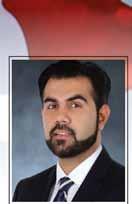


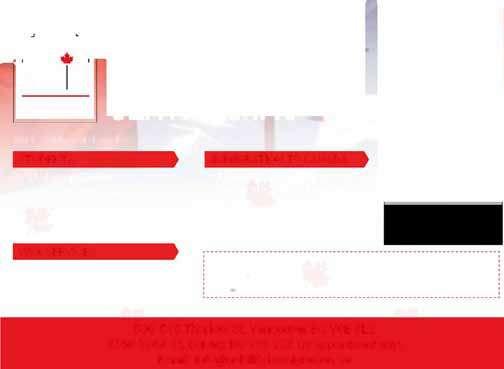







Dhul Qadah 13,1444 June 2, 2023 11
SACRIFICE
QURBANI ! UDHIYA !!
!!! THE HUMAN CARE BC SOCIETY
! UDHIYA !! NC S NOBILITY CANADA IMMIGRATION SERVICES We Provide Services For STUDENTS ,. Studying in Canada ,. Studying & Immigrating to Canada ,. Study Permit Matter (New, Ext ension, Renewal Restoration) VISA SERVICES ,. Visit Visa ,. Parent/Grandparent ,. LMIA for Employers IMMIGRATION TO CANADA ,. Employees with Education Background & Work Experience ,. Business Owners ,. Entrepreneurs ,. Investors SHAHRUKH NASEER, RCIC M: 604 724 0690 We are a Licensed and Regulated Immigration Consulting Service Firm Located in British Columbia, Canada. Note: For your protection, Always you deal with Registered and Regulated Immigration Consultant Lawyer when getting advice Canadian Immigration. BEWARE OF FRAUDULENT IMMIGRATION ADVISORS. CHECK REGISTRY OF IMMIGRATION CONSULTANTS AT http://secure.iccrc-crcic.ca/search-new/EN M: 604 724 0690 Email: info@nciscanada.ca WWW NCISCANADA.CA



Ramadan 02,1444 June 2, 2023 12


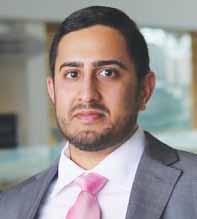
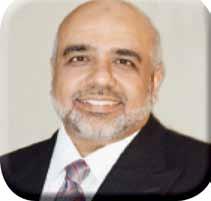



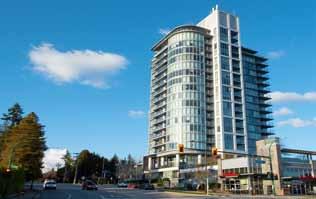








Dhul Qadah 13,1444 June 2, 2023 13 New Listing Property in 2023 Sold Properties in 2023 604 -518 - 3782 adeeb.shums@century21.ca (Realtor) (Realtor) 604 - 839 - 7863 ayyazrealtor@gmail.com PREC A2Z Team Adeeb Shums $379,000 $1600,000 $620,000 $1080,000 $700,000 $1,299,900 $575,000 $695,000 $647,500 $904,761 $703,900 2734 Fairview Crescent Prince George BC V2N 1G5 14377 84 Ave Surrey, BC V3W 0W3 514 3018 ST. George Street Port Moody BC V3H 0L4 7186 Elwood Dr Sardis , BC V2R 1G8 1203 958 Ridgeway Avenue Coquitlam BC V3K 0C5 805-4388 Buchanan Street Burnaby, BC V5C 6R8 160 2844 273 St Langley, BC V4W 3S6 13812 65A Avenue Surrey BC V3W 9R8 43 21555 Dewdney Trunk Rd, Maple Ridge BC V2X 3G6 46031 Riverside Drive Chilliwack, BC V2P 3K9 Pura #507 Surrey Central City, BC r2745890 r2750833 r 2760003 r 2760969 r 2760969 r 2757984 r 2270535 r 2766625 r 2772925 r 2782625 r2748278 pre Sale Ayyaz Shums Beautiful Family House in a Quiet cul-de-sac, 4 bedrooms 3 Bathrooms, 1 bedroom(no closet) with new fully renovated ensuite Bathroom on the Main Floor. Premium Vinyl Flooring, Built In Wall Oven, Open Floor Plan, Above 3 Spacious Bedrooms with 2 Washrooms, Large New Outdoor Patio overlooking backing onto Green Space, Seller’s have Permit from City of Surrey to Extend Deck on the Front Side of the House. Walking distance to Parks, Close to Transit, Schools, Shopping & Recreation Centre. Open House Sat / Sun June 2 / 3 from 2-4 pm.
The Islamic Education School (TIES) End of Year Graduation - Celebration.
On May 27th, TIES - The Islamic Education School, held its annual Graduation observance at the AICP Center in New Westminster.
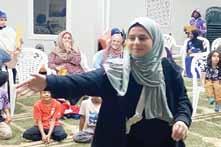

The celebration started with a speech from Principal brother ^Imad Nouri about the importance of acquiring Knowledge especially the Religious one. Report cards were handed out to the students in a very supportive encouraging environment, after that some of top students were awarded recognition.
TIES - The Islamic Education School- is pleased to always present the pure and truthful Islamic Knowledge to our community and will open its doors again on Saturday, September 9, 2023 for the New School Year 2022-2023. Reported by: Br, Imad Naouri Note: See more detilas about school in Miracle’s August 11, 25th editions.

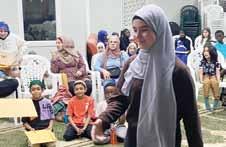
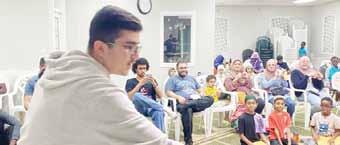
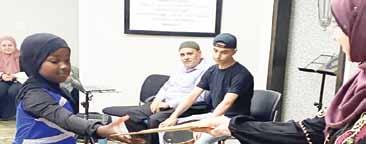

Allhumdulilla The Miracle Media is proud that the Miracle is the only one in the BC Muslim Print Media market which is non-stop a bi-weekly publication during the Pandemic 2019-2022 and after the Covid crisis till this day. Its availability at Website. miraclenews.com, Facebook (the Miracle Newspaper), Twitter, (https://twitter.com/Miraclenews1), and at two other digital printing service providers, “Press Reader” at https://www.pressreader.com/canada/ the-miracle/latestand “Magzter “ at https://www.magzter.com/CA/ Miracle-Media-Group-Inc in all





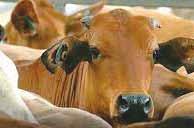


Dhul Qadah 13,1444 June 2, 2023 14 Lo CAL EVENT
Book Your Qurbani o rder now! SEPHIRE SEPHIRE Available Services of Vadilal/Deep/Ashoka Products Goat Lamb
over the world. Cow
DURING a 90-minute meeting in August 2016 in Ankara, Turkish President Recep Tayyip Erdogan recalled an interesting conversation for us.
“The French foreign minister once told me that Pakistan managed to develop its nuclear programme and became a nuclear power since they (the West) were too preoccupied confronting the Soviet Union during the Cold War. ‘Never again will we allow any other Muslim country to have the bomb’,” he quoted the French official as saying. But just how did Pakistan — a poor country with no oil, unlike Iran, Iraq or Libya (who each tried but failed to get the bomb) — an inefficient, unstable state which often lacked coordination, manage to evade scrutiny, bypass the might of the West and build the bomb? Five reasons stand out.
First, Zulfikar Ali Bhutto’s vision, which he enunciated within the first month of taking office during his famous Multan meeting with nuclear scientists in January 1972, as well as his indomitable will to translate that vision into reality.

Second, the inspiring leadership of Dr A.Q. Khan and his competent and committed team of dedicated scientists, who worked with a crusader’s zeal to make the bomb. Just how did Pakistan, a country with so few resources and a dysfunctional state apparatus, manage to bypass Western intelligence and withstand subsequent global pressure to become a nuclear power?
MUSHAHID HUSSAIN SAYED narrates a story of unwavering conviction and consistent effort.
Third, the Afghan War during the height of the Cold War, which provided convenient cover for pursuing the nuclear project, as the United States and the West were totally focussed on confronting the Soviet Union.
Fourth, pursuing the project on a war footing with a one-window operation, bypassing ‘the system’ and keeping the nuclear project a separate, autonomous entity — a ‘state within a state’ unencumbered by red tape and the drudgery of drafting PC-Is, having to be audited, seeking budget approvals, or having work interrupted by intrusive bosses.
Fifth, Bhutto’s three-man committee under Ghulam Ishaq Khan, which included A.G.N. Kazi and Agha Shahi — all three civil servants of unimpeachable integrity, committed Pakistani nationalists who could neither be bought nor pressured. Agha Shahi provided Dr Khan and his core team diplomatic passports to facilitate their travel, while the Pakistan Army’s Corps of Engineers created a Special Works Organisation for the construction of the Kahuta. Lt Gen Ali Zamin Naqvi, who was in charge of security for the project, had his own team, with no interference from even intelligence outfits like the ISI or the IB.
The senior scientists’ troika of Prof Dr Abdus Salam, Dr I.H. Usmani and Munir Ahmed Khan, plus other top scientists from the Pakistan Atomic Energy Commission (PAEC), like Dr Ashfaq Ahmed and Dr Samar Mubarakmand, also deserve credit because, in their own ways, they helped create
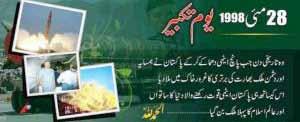
Stealth, conviction and the bomb: May 28, 1998
a vast and enabling science and technology infrastructure that made the pursuit of the bomb more feasible. Through their efforts, hundreds of foreign-trained, skilled scientists were put to work on the nuclear project.
Pakistan’s quest for the bomb was predicated on a dual plank approach: ‘Strategic Ambiguity’ (always denying nuclear ambitions, but never ruling them out either); and ‘Selective Messaging’ (building on strategic ambiguity, selective messaging was used whenever there was a perceived threat and an enemy needed to be deterred, as was the case in 1984, 1987 and 1990).
In 1984, when Indira Gandhi was facing the Khalistan insurgency, which she blamed on Pakistan, India, in collusion with Israel, had planned an Iraq-type air raid to destroy Kahuta. However, the CIA tipped General Zia off. It was then that selective messaging first came into play. Dr Khan ‘revealed’ during a February 10, 1984, media interview that Pakistan had already achieved capability to produce weapons-grade uranium, and “in the event of the destruction of Kahuta, more than one such plant can be set up in Pakistan”.
A fortnight later, on February 27, 1984, Gen Zia confirmed the statement in remarks to the media. In April 1984, English daily The Muslim (of which I was then the editor) was given the government’s blessing to organise the first-ever Pakistan-India Track-II in Islamabad. It brought in prominent Indian journalists and opinion leaders and helped create an embryonic ‘peace constituency’
his Indian counterpart, I.K. Gujral.
“War clouds are hovering over the subcontinent,” he simply warned. At the same time, the US intelligence claimed to have ‘picked up’ some nuclear-related activity in Pakistan, causing President Bush to rush his Deputy National Security Adviser Robert Gates to Pakistan and India, which helped in the defusion of the crisis.
No wonder that 25 years later, on August 31, 2012, India’s National Security Adviser, Shiv Shankar Menon, complained in a speech to a disarmament conference in New Delhi: “On at least three occasions before 1998, some powers used explicit or implicit threats of nuclear blackmail to try and change India’s behaviour.”
India apart, the United States was among those implacably opposed to Pakistan’s acquisition of the bomb. On at least two occasions, massive American pressure was put on Pakistan apart from the sanctions already in place.
In August 1979, after the US discovered the Kahuta Complex, the Americans deliberately leaked a story to The New York Times which stated that the US was preparing plans to “disable” it. A worried Gen Zia despatched a high-powered delegation to Washington in October 1979 for talks with the Carter administration.
Foreign Minister Agha Shahi led the delegation, which included three-star generals K.M. Arif, Sahibzada Yaqub and Ghulam Jilani Khan. The Americans remained unconvinced, and Agha Shahi was bluntly told that, by pursuing the nuclear programme, “you are entering the Valley of Death”.
thets for his Pakistani interlocutors.
The last lap in the bomb project was quite fortuitous. On April 6, 1998, I was at the PM House with Mian Nawaz Sharif, who at the time was the prime minister, when he received army chief Gen Jehangir Karamat and Dr Khan. They proudly played the cassette of Pakistan’s successful test of Ghauri, a missile with a 1,500km range armed with a nuclear warhead. This was a strategic game-changer because Indian targets were now within range of Pakistan’s most lethal weapon.
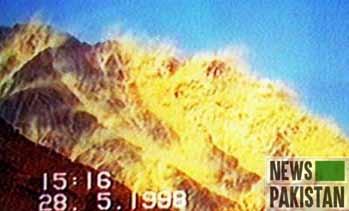
On May 11, 1998, the former prime minister and I were in Kazakhstan for a summit. It had just ended and we were trekking in the hills around Almaty when we got the shocking news that India had tested the bomb. When Nawaz asked my opinion, I said: “Mian Sahib, it’s now or never. India has provided us a golden opportunity; we should go for the blast.”
in mainstream Indian media. The raid never took place. In January 1987, when India organised the largest military manoeuvres in the history of South Asia since 1947, fear developed in Pakistan that Exercise Brasstacks could be the precursor of Operation Brasstacks, with Indian forces having converged closer to the land border.
It was in this context that, on January 28, 1987, Dr Khan told eminent Indian journalist Kuldeep Nayyar at his residence in Islamabad, in my presence: “Be clear, we shall use the bomb if our existence is threatened.” The interview was published in India and internationally on March 1, 1987.
Interestingly, like the messaging in 1984, Gen Zia personally corroborated the interview when he told TIME magazine on March 30, 1987: “You can virtually write today that Pakistan can build a bomb whenever it wishes. What is difficult about a bomb once you have acquired the technology which Pakistan has – you can do with it whatever you like.”
Exercise Brasstacks, which had started with a bang, ended on a whimper.
In the spring of 1990, when India was unable to subdue the popular uprising in Occupied Kashmir, there was again a threat of Indian aggression. Pakistan sent Sahibzada Yaqub Khan to India with an uncharacteristically harsh message, which the usually soft-spoken foreign minister conveyed to

Interestingly, around the same time that this delegation was weaving circles around the Americans regarding the ‘peaceful nature’ of the Pakistani nuclear programme, Gen Zia had secretly directed his trusted nuclear scientist, Dr Ashfaq Ahmed, to go scouting for the site of a future nuclear test. The Chagai site was chosen in October 1979, some 19 years before the actual test!
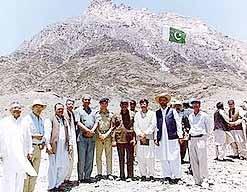
Later, in the aftermath of the Gulf War, when the Soviet Union was collapsing and America’s imperial hubris was at its height after it proclaimed a New World Order, US under-secretary of state Reginald Bartholomew visited Pakistan in November 1991 with a one-point agenda: make Islamabad roll back the nuclear programme.
After icy interactions with the prime minister and the army chief, he had a stormy meeting with president Ghulam Ishaq Khan, who put him on the spot with his amazing command of facts, figures and the law. The senior American diplomat angrily walked out of the meeting as an expression of annoyance at Pakistan’s uncompromising hard line on its nuclear programme. He denounced Ishaq Khan as ‘Mr Nuke’, and spewed some choice but unprintable epi-
When Indian prime minister Atal Bihari Vajpayee had come to Lahore in February 1999 on his historic bus ride, Nawaz smilingly opened the talks by thanking the Indian leader “for providing us the opportunity which enabled Pakistan to become a nuclear power”. Vajpayee listened unfazed, unsmiling. The period between May 11, when India tested, and May 28, when Pakistan responded, was probably Pakistan’s finest hour. The planning and execution were meticulous. There were broad consultations with the political leadership and opinion leaders, followed by a national consensus. Our messaging was mature and reasoned minus any jingoism, or even a hint of any triumphalism. The single most important national security decision in the history of Pakistan was purely a civilian decision taken by the elected political leadership. Among the three service chiefs, one was opposed, one supported and the third was neutral, saying “Sir, it is your decision”.
When the history of the bomb is written, the credit must go to five individuals for pulling off this historic feat. Zulfikar Ali Bhutto, for initiating the programme and pushing it with single-minded determination. Ghulam Ishaq Khan, for personally supervising the project for 17 years, from 1976 to 1993, with an unwavering resolve. Dr A.Q. Khan and his talented team, for pulling off what was widely perceived as a ‘mission impossible’. Gen Zia, for continuing the programme through a sophisticated stealth approach of deception, quite similar to how other countries, like Israel and India, got their bombs. And, finally, Nawaz Sharif, for taking the momentous decision to detonate the bomb, defying all the pressures and inducements to the contrary.
At the end of the day, this was truly a national achievement. As Pakistan celebrates 75 years of its independence, the bomb project remains an eloquent testimony to the resilience of our nation. Given leadership and strategic clarity, Pakistanis can rise to the occasion and deliver, and, in the immortal words of the Quaid-i-Azam, “prove themselves equal to the task”.
By: Mushahid Hussain Sayed Editor of The Muslim, and currently chairs the Senate Defense Committee.
15 Dhul Qadah 13,1444 June 2, 2023
N UCLEA r h IST or Y
IN fo/ LI f ESTYLE history updates of
Corps Commander house, Lahore
reasserted control over the property, offering a monthly rent of Rs 500. Since then, the property serves as the official residence for the Corps Commander of Lahore.
Corps Commander House, Lahore
General information
Address Bungalow No. 53, Lahore Cantonment, Lahore, Punjab, Pakistan
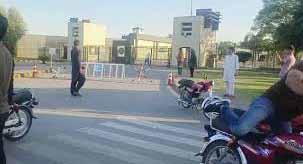
Completed 1943; 80 years ago
Owner Mohan Lal Bashin (until 1943)
Muhammad Ali Jinnah (1943–1948)
Pakistan Army (1948-present)
The Corps Commander House, is a historical bungalow in Lahore Cantonment. It is the official residence of the Lahore Corps Commander. History.
In 1943, Muhammad Ali Jinnah acquired the property from Mohan Lal Bashin. Jinnah died in 1948. Following his death, the property was handed over to his representative, Shahbaz, the father of Syed Babar Ali, in January 1948, having previously been requisitioned by the British Army.
Later, in the same year, the Pakistan Army
what
In 2007, the Federal Board of Revenue unearthed historical documentation revealing that Mohammed Ali Jinnah, the founder of Pakistan, once owned the Corps Commander House in Lahore.
The revelation ignited a dispute between the military and civilian administrations, as the army staunchly resisted relinquishing their entitlement to the property.
According to the Pakistan Army, the property was acquired by them from Fatima Jinnah, Mohammed Ali Jinnah’s sister, for Rs. 3,50,000.
Damage on May 9th, 2023
OnMay 9th, 2023, Imran Khan was arrested, stirring nationwide violence. During the ensuing violence, the building and its contents were damaged. The official government and the ex-Prime Minister claims of the causes and culprits behind the violence are in disagreement with each other.
Government claims
According to a press release from InterServices Public Relations, the media wing of Pakistan Army, Khan’s arrest was legal.
Is fascism ?
Fascism is a far-right, authoritarian, ultranationalist political ideology and movement, characterized by a dictatorial leader, centralized autocracy, militarism, forcible suppression of opposition, belief in a natural social
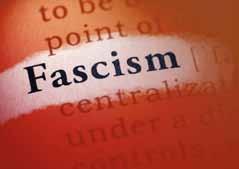
hierarchy, subordination of individual interests for the perceived good of the nation and race, and strong regimentation of society and the economy. Fascism rose to prominence in early 20th-century Europe. The first fascist movements emerged in Italy during World War I, before spreading to other European countries, most notably Germany. Fascism also had adherents outside of Europe. Opposed to anarchism, democracy, pluralism, liberalism, socialism, and Marxism, fascism is placed on the far-right wing within the traditional left–right spectrum. Fascists saw World War I as a revolution that brought massive changes to the nature of war, society, the state, and technology.
Missing anchorpersons
Imran Riaz Khan
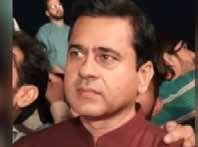
It gives insight into the obduracy of those in whose custody Imran
Riaz Khan is being held that multiple appeals from various quarters have not had even the slightest effect. The anchorperson was arrested on May 11 from Sialkot airport by law-enforcement agencies on charges of hate speech, two days after violent protests erupted countrywide in the wake of Imran Khan’s arrest. Released later that day, he was immediately picked up by ‘unknown persons’. Since then, despite court orders,
Immediately after the arrest, an organized plan was carried out to attack property and installations of the army, while chanting slogans against the forces. The army observed extreme patience, prudence, and restraint.
Imran Khan’s claims.
In an interview with Fareed Zakaria, the former prime minister Imran Khan claimed that the incident of damages, arson and violence were a reaction and possibly a conspiracy.
In various other video presentations, he also claimed that security apparatus was also involved in the incitement if not carrying out of the arson and violence.
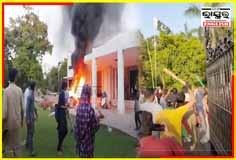
Source:dawn.com/news
Handing over of the Jinnah House in Mumbai to convert it into a museum may have been Pakistan’s demand for decades but the Pakistan Army has no problem with converting the equally palatial residence of M.A .Jinnah in Lahore as the residence for its Corps Commander.Source: en.wikipedia.org
While the Jinnah House in Lahore, which the Pakistan founder bought in 1943 from a Hindu, Mohan Lal Bashin well before the Partition, should have been a national heritage it served as the residence of Lahore’s Corps Commander, The News said on Thursday. wCiting documents the newspa-
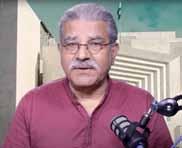
The advent of total war and the mass mobilization of society erased the distinction between civilians and combatants. A military citizenship arose in which all citizens were involved with the military in some manner. The war resulted in the rise of a powerful state capable of mobilizing millions of people to serve on the front lines and providing logistics to support them, as well as having unprecedented authority to intervene in the lives of citizens. Fascism rejects assertions that violence is inherently bad and views imperialism, political violence and war as means to national rejuvenation.Fascists often advocate for the establishment of a totalitarian one-party state, and for a dirigiste economy, with the principal goal of achieving autarky (national economic self-sufficiency) through protectionist and economic interventionist policies.
condemnation by rights groups and journalists’ organisations, and his father’s emotional appeal before the Lahore High Court, nothing has been heard of him. His lawyer has stated a few times that he has learnt through his own initiative that Mr Khan is alive and well and may soon be released. One hopes this is indeed the case, though that cannot be allowed to deflect from the brazen illegality of his abduction and his detention beyond the reach of his family and legal counsel
per said the house was handed over to Jinnah’s representative after his death but it was again taken over by the military and continues to keep it under its control till date. After being requisitioned by the British Army, the property was handed over to Sayed Murtab Ali, the representative of Jinnah in January 1948.
Jinnah’s Lahore house was one of the three major properties bought by the Qaid before Partition. He owned similar palatial houses in Karachi and Mumbai.
While such was the state of Qaid’s houses in its own backyard, Pakistan made the acquisition of Jinnah House in Mumbai its prime demand which it later linked to the reopening of the Consulates in Mumbai and Karachi. India, however, settled the issue by converting Jinnah House into a SAARC museum, which would be developed in the coming years. Source: hindustantimes.com
Fascism’s extreme authoritarianism and nationalism often manifests as belief in racial purity or a master race, usually blended with some variant of racism or bigotry against a demonized “Other”, such as Jews. These ideas have motivated fascist regimes to commit genocides, massacres, forced sterilizations, mass killings, and forced deportations.
Since the end of World War II in 1945, few parties have openly described themselves as fascist; the term is more often used pejoratively by political opponents. The descriptions of neo-fascist or post-fascist are sometimes employed to describe contemporary parties with ideologies similar to, or rooted in, 20th-century fascist movements. Some opposition groups have adopted the label anti-fascist or antifa to signify their stance.
Source: en.wikipedia.org/wiki/Fascism
Sami Abraham’s
Abraham’s disappearance was first announced in a police tweet late on Wednesday, hours after he went missing. In a news announcement the same day, BOL TV said Abraham was taken by unidentified men. Abraham has long publicly opposed the government of Khan’s successor, Prime Minister Shehbaz Sharif, and is a critic of Pakistan’s powerful military, which has directly ruled the country for nearly half of its 75 years of independence.
Pakistani police and intelligence agencies have denied detaining him.
“Authorities must respect the rule of law and either present Abraham and Khan in court or immediately release them ..Source: aljazeera.com
New study finds Canadian women are more likely to adhere to social and democratic values than men
Respect for the law, gender equality, and diversity, are a few of the Canadian values identified in the Canadian Charter of Rights and Freedoms. But do all Canadians share these to the same degree?
New data from the General Social Survey by Statistics Canada examined values across different Canadian demographics and found that Canadian women are more likely to closely adhere to most social and democratic values than Canadian men.

Statistics Canada used 2020 data from the Social Identity survey and examined how greatly each gender valued human rights, respect for the law, gender equality, language duality (English and French as the countries’ official

languages), ethnic and cultural diversity and respect for Indigenous cultures. In general, 86 per cent of Canadians strongly valued human rights, 81 per cent valued gender equality and 80 per cent respect the law. When it came to gender, the study found more women agreed with values such as gender equality, ethnic and cultural diversity and respect for Indigenous cultures versus men.
In fact, 71 per cent of women valued ethnocultural diversity, compared to 62 per cent of men.

The data showed 68 per cent of all Canadians place a high value on respecting Indigenous cultures, however, more women were found to value this than men.
Respecting cultures is defined as respecting the unique histories,
languages, cultural practices and spiritual beliefs of diverse Indigenous groups, according to Statistics Canada.
Based on the collected data, this is highly valued amongst the Indigenous population. Statistically speaking, 90 per cent of Indigenous women greatly value the respect for Indigenous cultures, compared with 73 per cent of non-Indigenous women. Meanwhile 78 per cent of Indigenous men strongly agreed with this value, compared to 63 percent of non-Indigenous men.
When it came to linguistic duality, there was no gender difference for Canadian values placed on English and French as official national languages—55 per cent of the surveyed population shared
this value.
DIFFERENT GENERATIONS, DIFFERENT VALUES?
Looking at the intersection of gender and age, it was found that 82 per cent of women aged 15 to 34 years old care greatly about respecting Indigenous cultures, compared to 67 per cent of men in the same age group. Other findings from government collected data from 2016 to 2019 have similarly found that in general, Canadian youth care greatly about diversity, wanting more diverse representation among staff in justice system institutions and more investment in culturallyrelevant resources in these communities.
Comparing age groups among women, it was found that women
aged 65 or older agreed less with valuing ethnocultural diversity than the younger demographic of women—60 per cent compared to 82 per cent in 2020. However, 91 per cent of the women in the older demographic held a high value for respect for the law as opposed to 69 per cent of young women. Patterns between the same age groups were similar for men. Source: ctvnews.ca
16 Dhul Qadah 13,1444 June 2, 2023


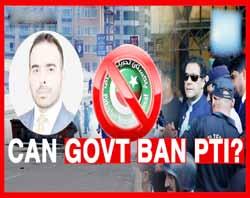
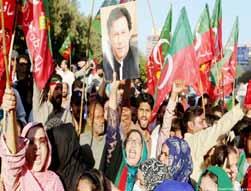
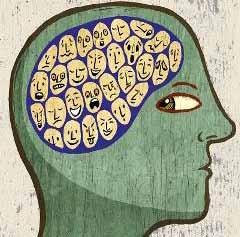


17



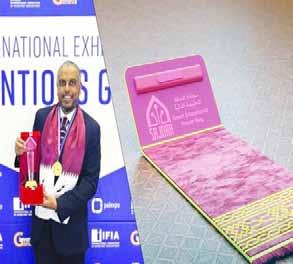

18


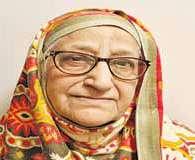
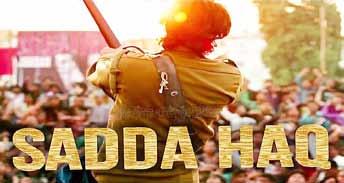

19


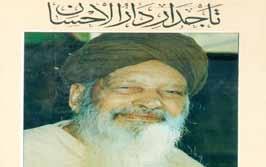
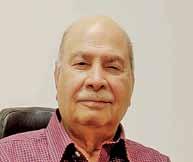
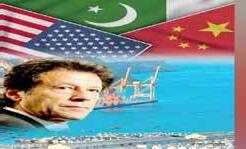
20




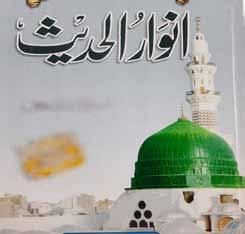
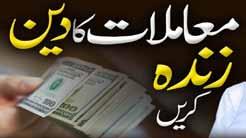
21





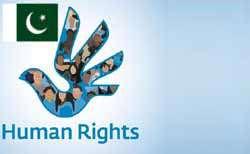
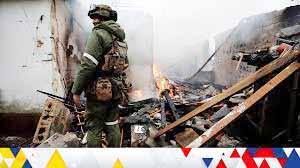
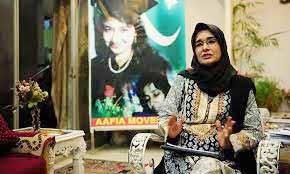
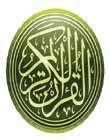

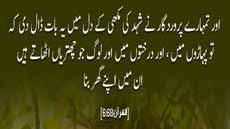

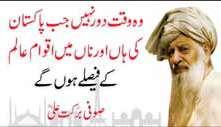
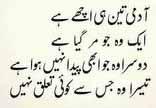
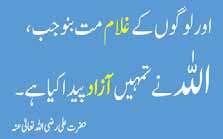



22 PICTURE 604-690-0400 miraclenews@telus.net www.miraclenews.com PICTURE 604-690-0400 miraclenews@telus.net www.miraclenews.com




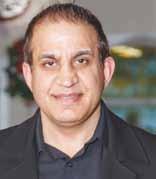


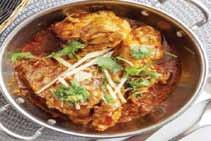

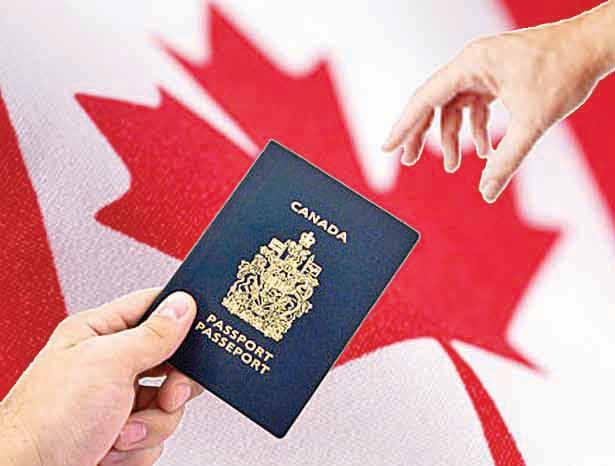

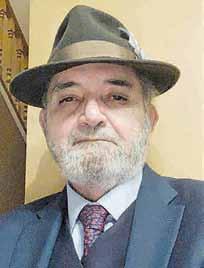


23 Owner: Siraj Khan Special Hrs: 11am to12pm. Open 7 Days a Week pakistani & Indian Cuisine King of the Grill DEWAN-E-KHASS Please follow us on Facebook Dewan-E-Khass & www.dewanekhass.com Dewan-e-Khass specializes in exotic Pakistani, Indian Grill and Karahi dishes made by our experienced cook from Pakistan. We invite you to come and taste one of our authentic dishes. We are sure once you taste, you will come again. 5750 Fraser Street, Vancouver 604.327.4800 Syed Khan, RCIC I Can Help Immigration Services Cell: +1 778 239 7861 * Need Immigration Help * Appeal Immigration Decision * 28 Years Of Experience Book Free Consultation Now!
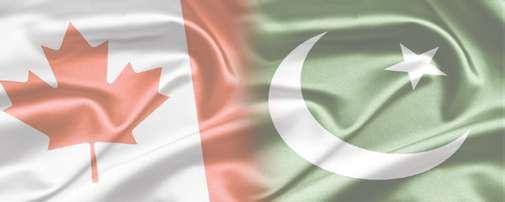

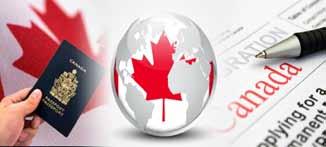








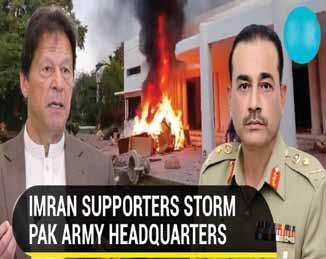
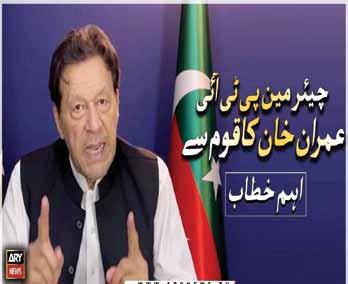
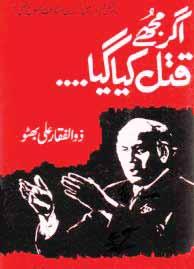



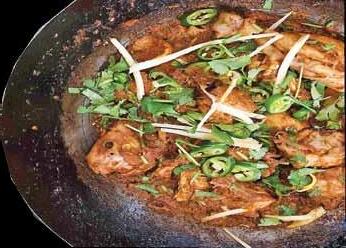

notary public Immigration Consultant mohamed Salim Contractor Unit #219-7928, 128 St. (York Business Centre) Surrey. BC V3W 4E8 C: 604.817.3022 O: 604.503.5025 Fax: 604.503.5045 http://www.salimnotary.com/ http://cwics.ca/ www.cwics.team Emails:salim@salimnotary.com &:cwics.team@yahoo.ca NOTARY PUBLIC (604) 596 1861 # 220-13711 72 Ave. Surrey, BC (Opp. Newton Wave Pool) Shoaib.surrey@gmail.com Shoaib Rauf BARNEY’S PIZZA & FRIED CHICKEN Delicious Food For Every Mood Unit 348- 8140-128th Street, Surrey (Payal Business Centre) Wed-Mon: Bus Hrs: 11AM TO 12PM ARSHAD SOHAL 778-565-4416 BUSINESS HOURS: Wed-Mon: 2 PM to Midnight TUESDAY CLOSED New Items: Malai Botti, Full Chargha, Tandori Fish Hotpan Pizza Business Area: Pizza Hrs: 11am to 2am Karahi Hrs: 12pm to 2 am Tuesday Closed









































































































































































